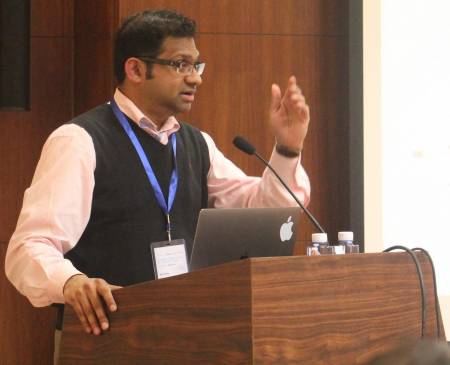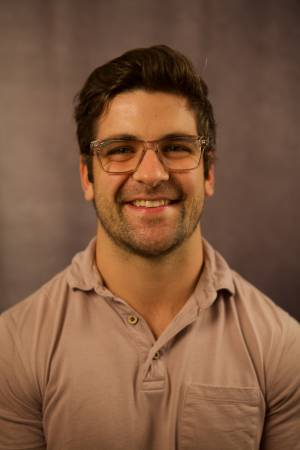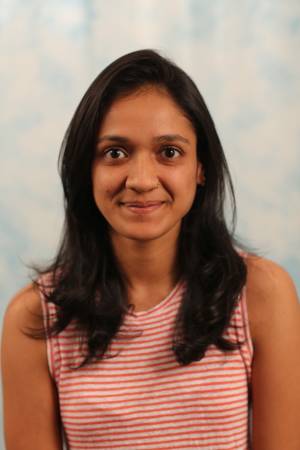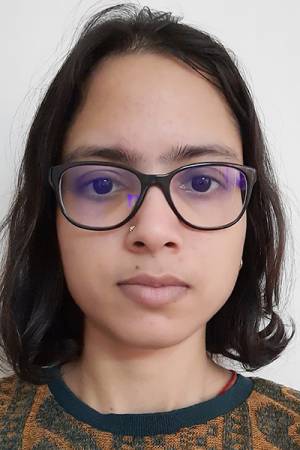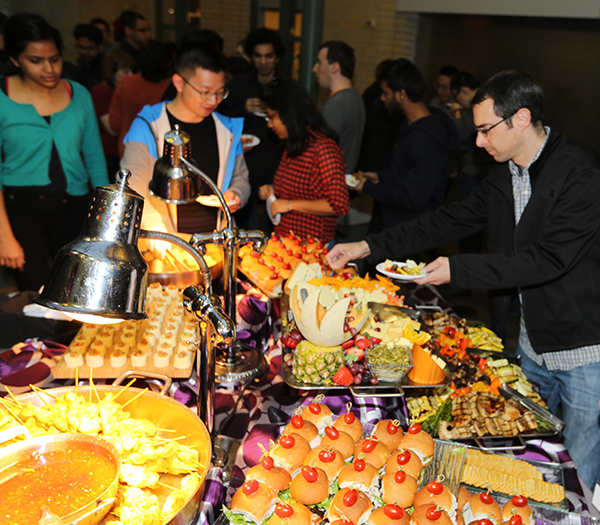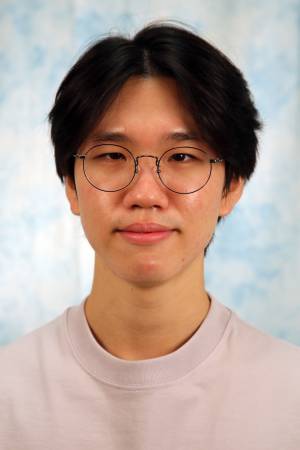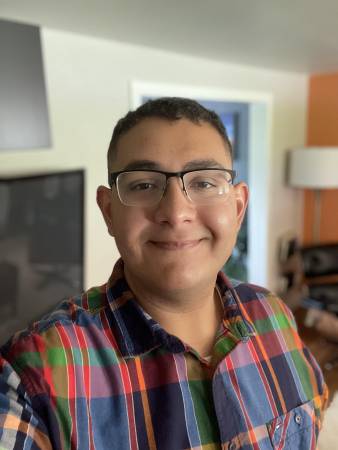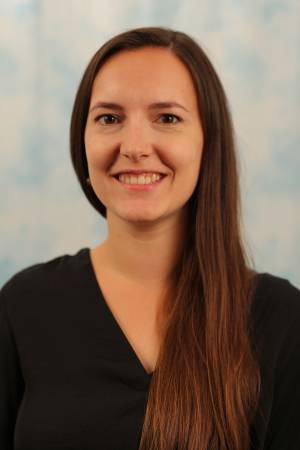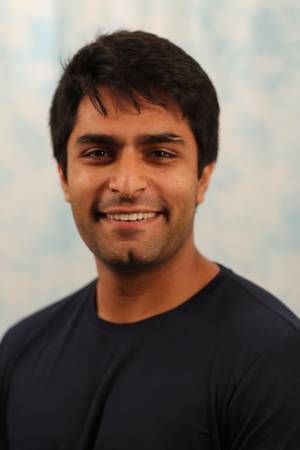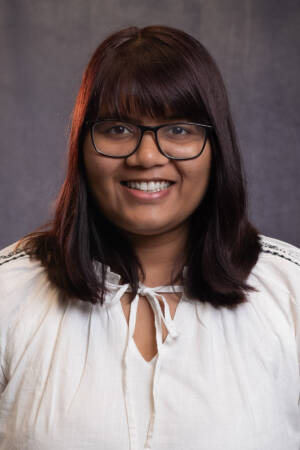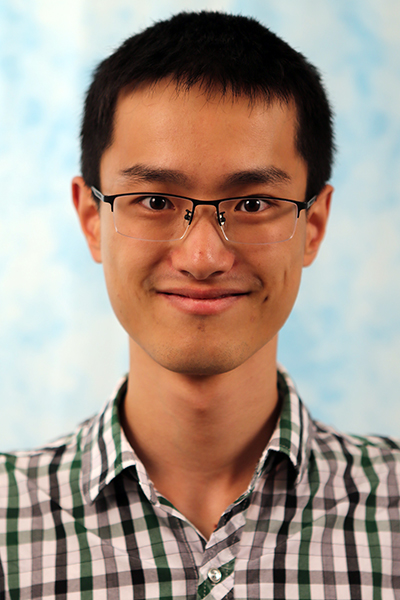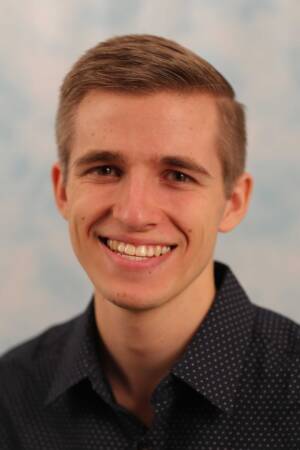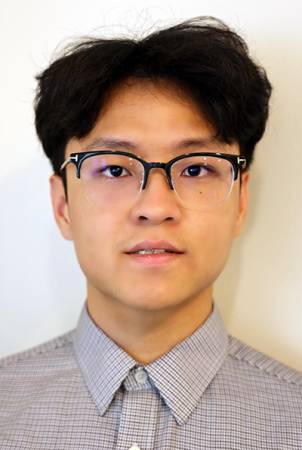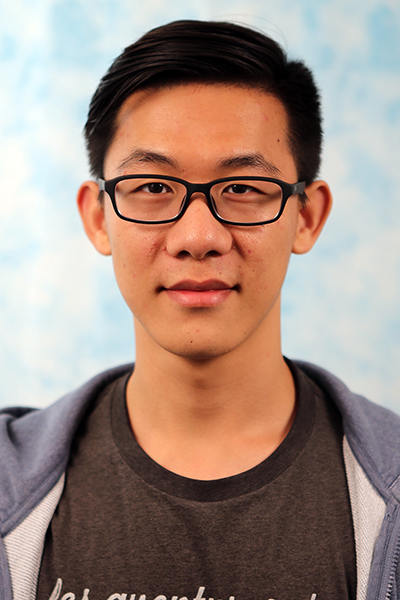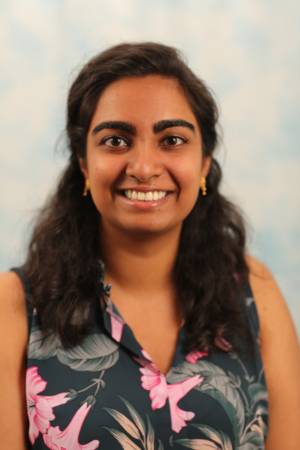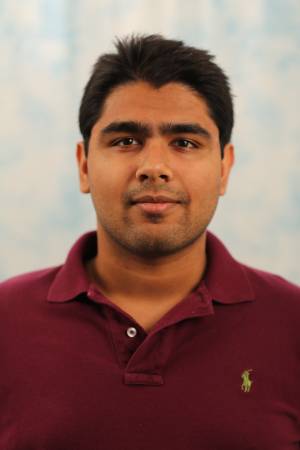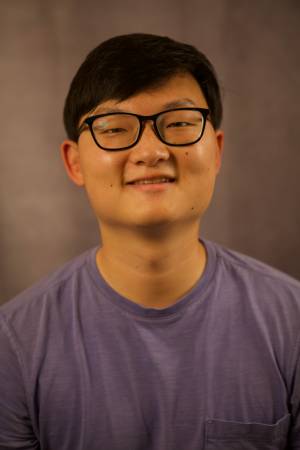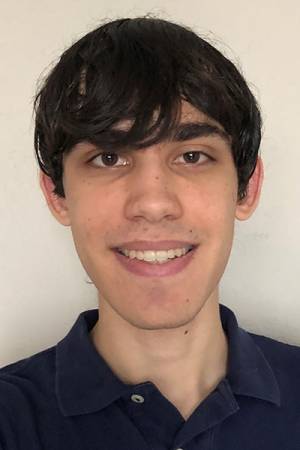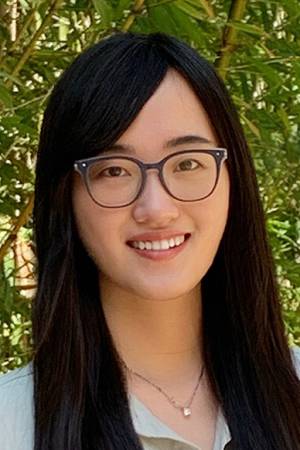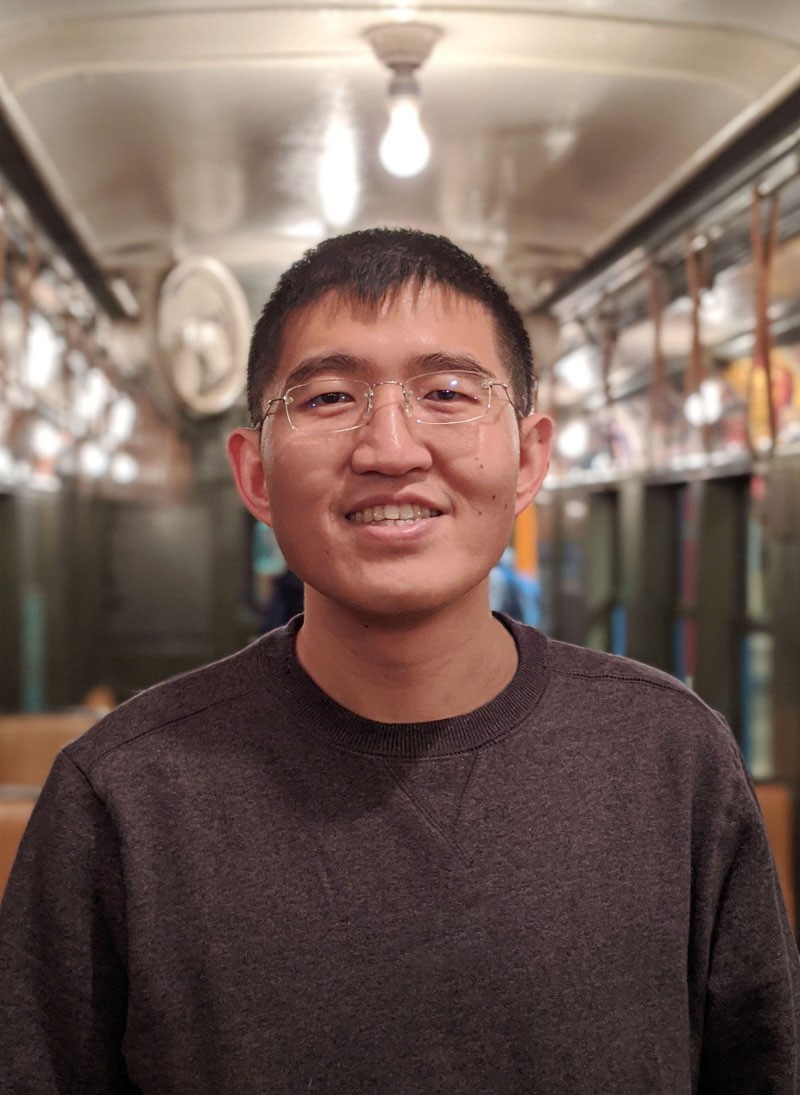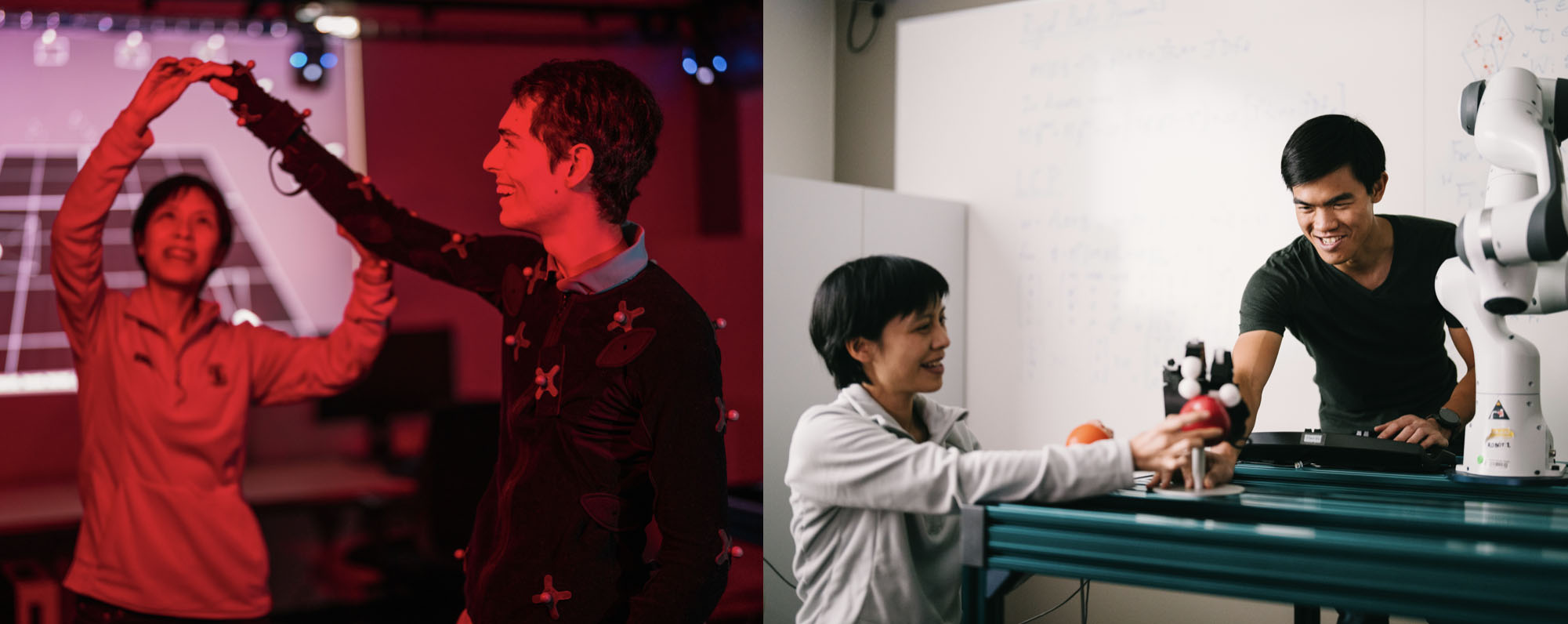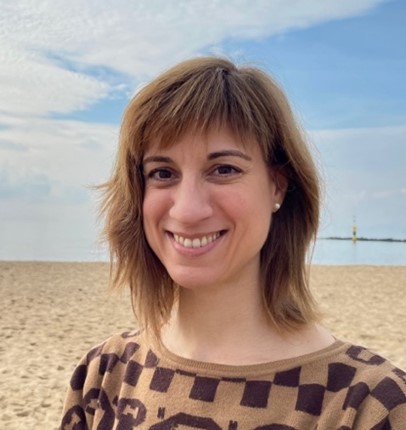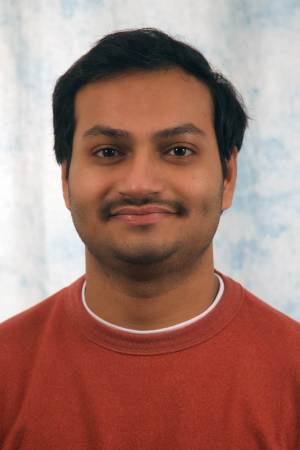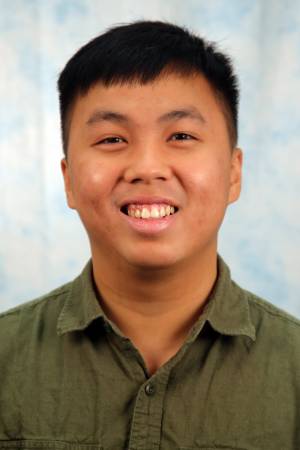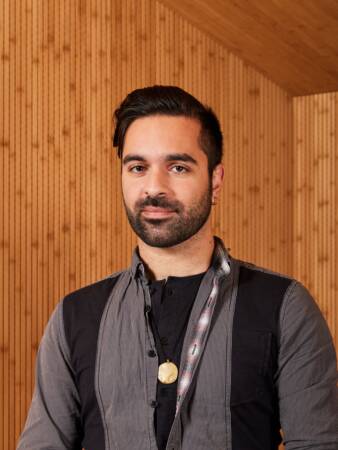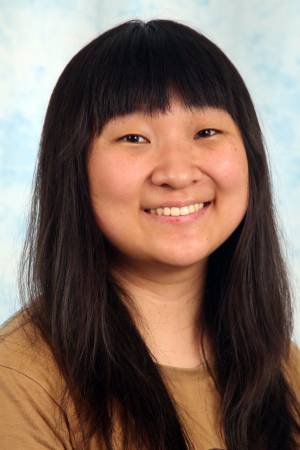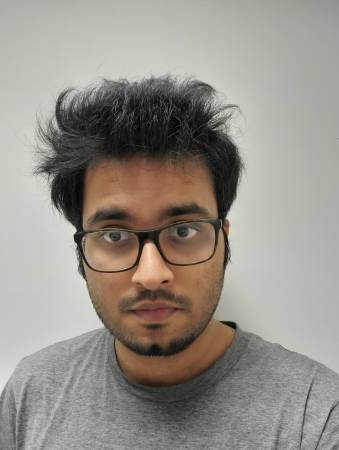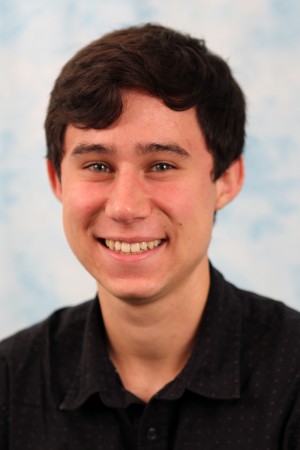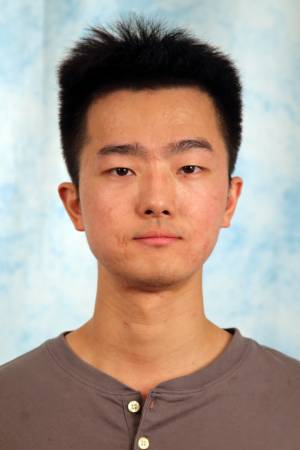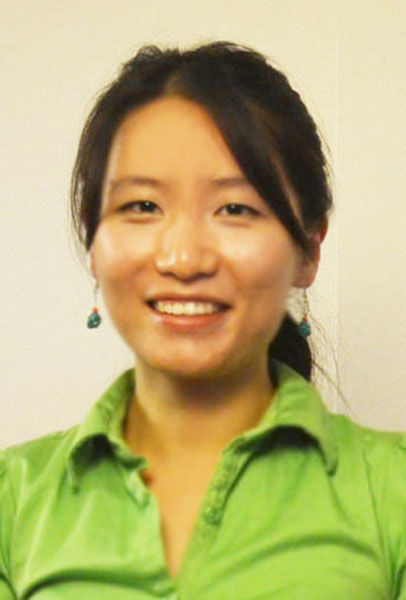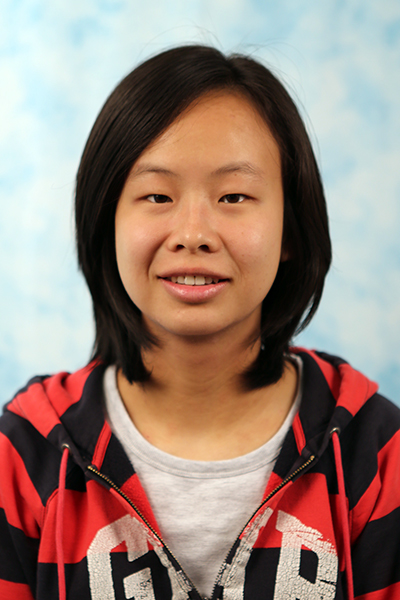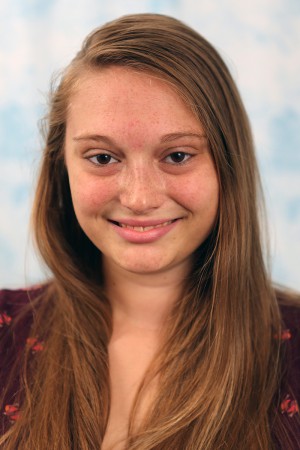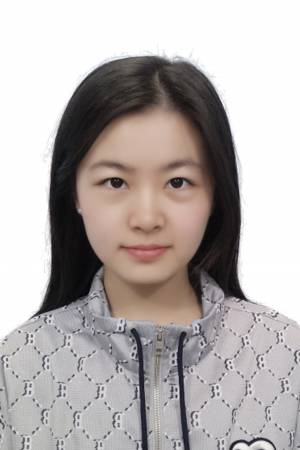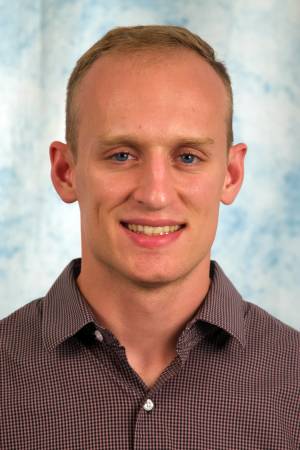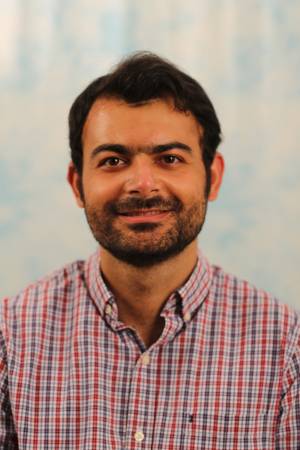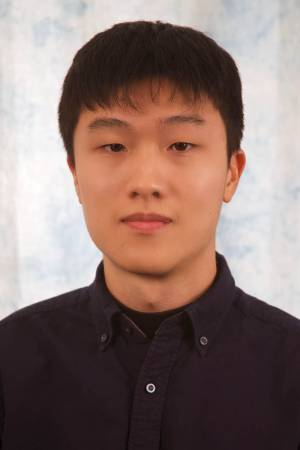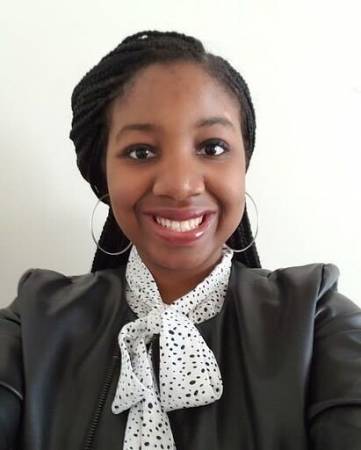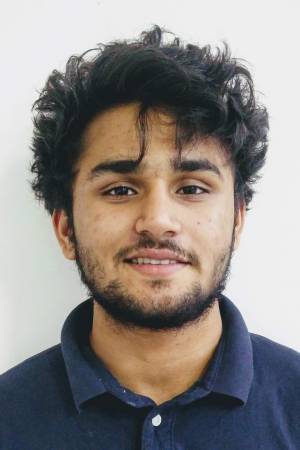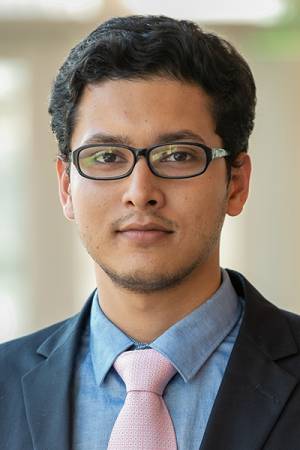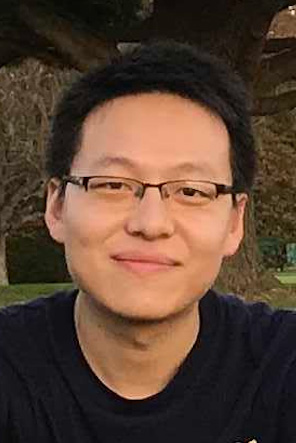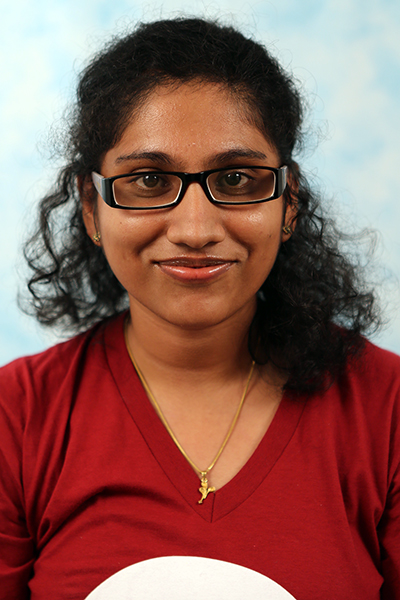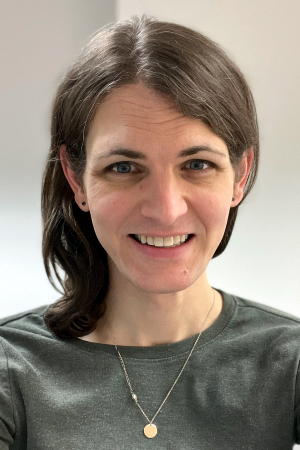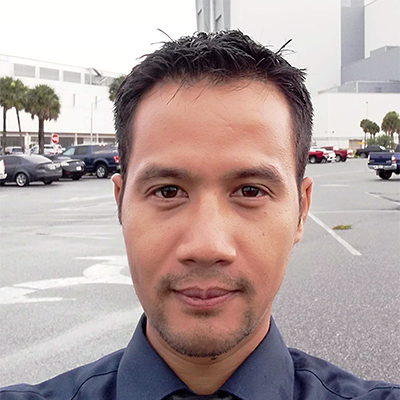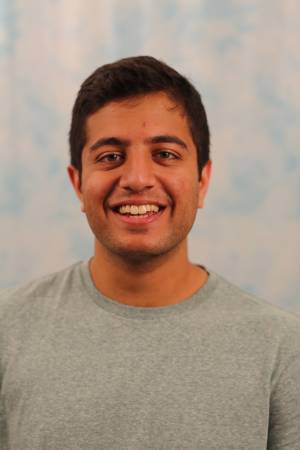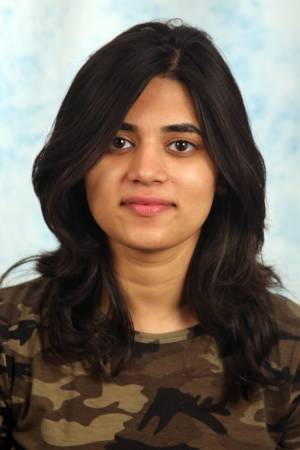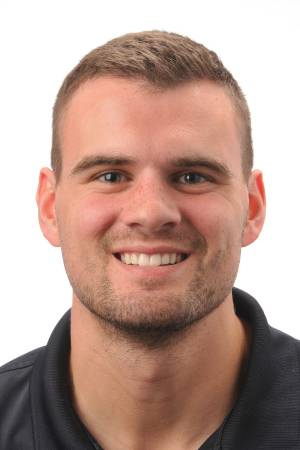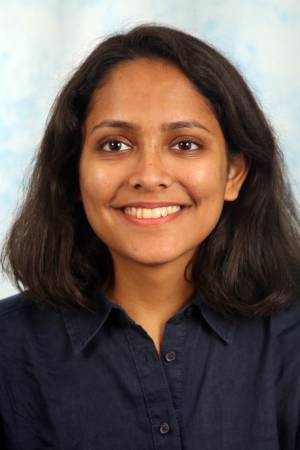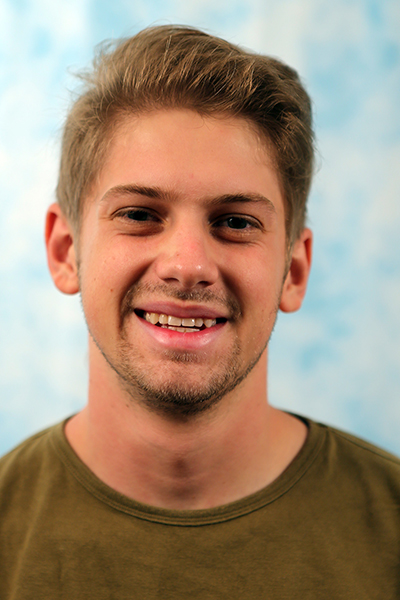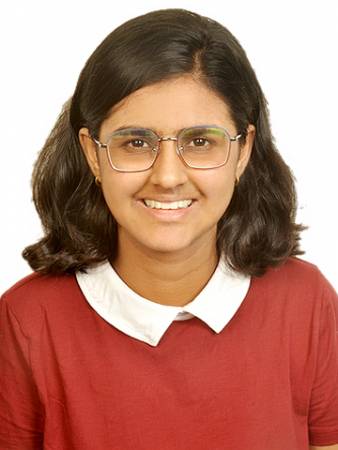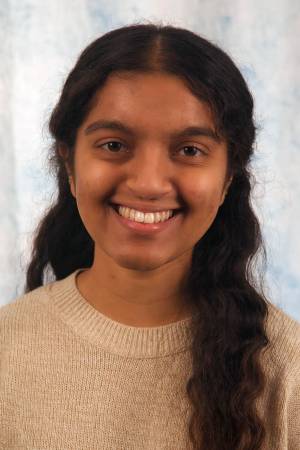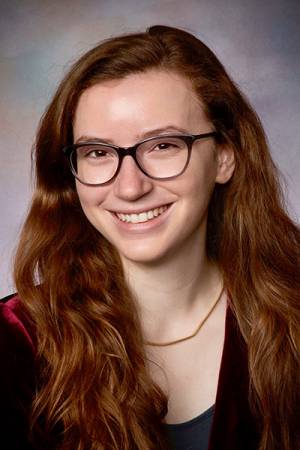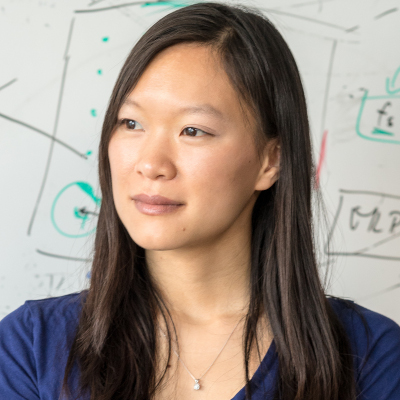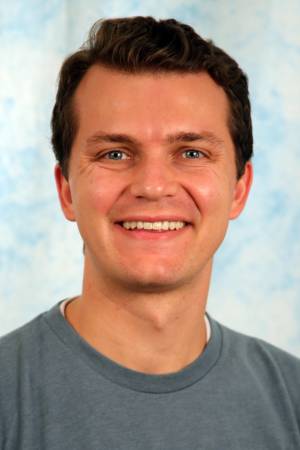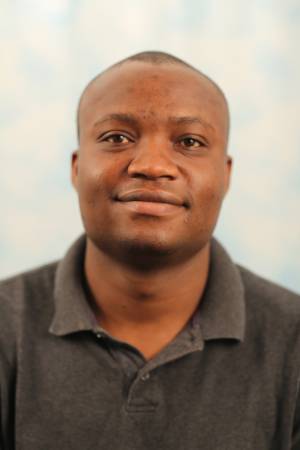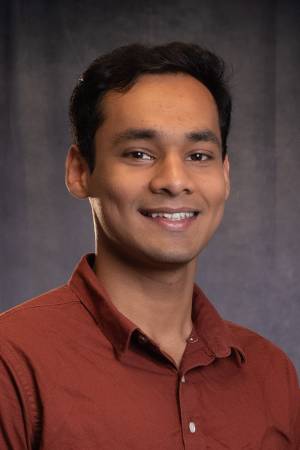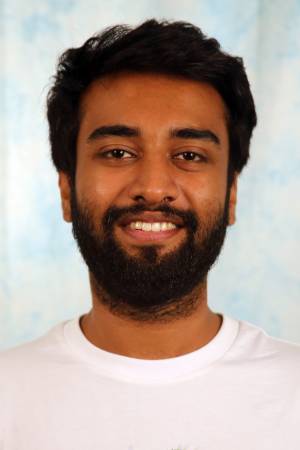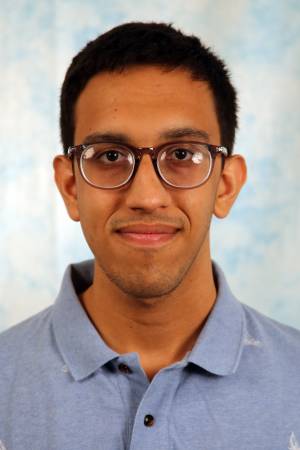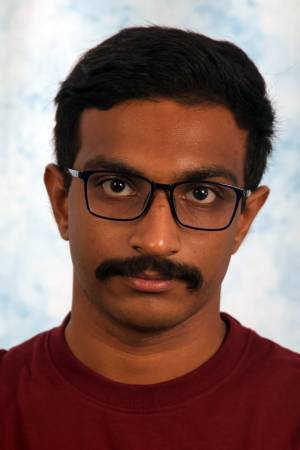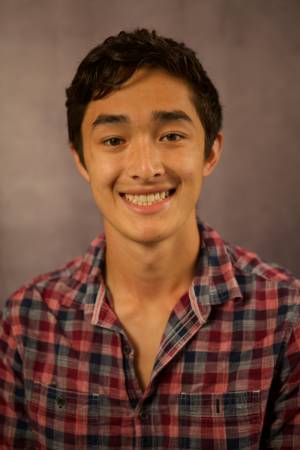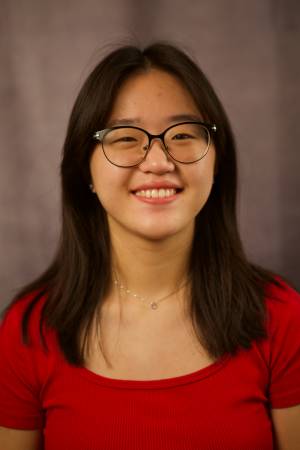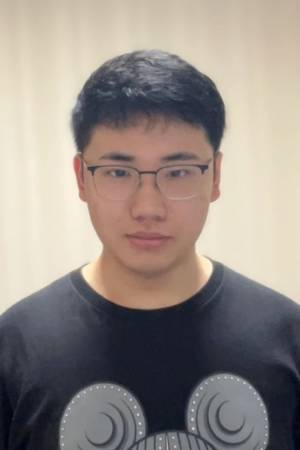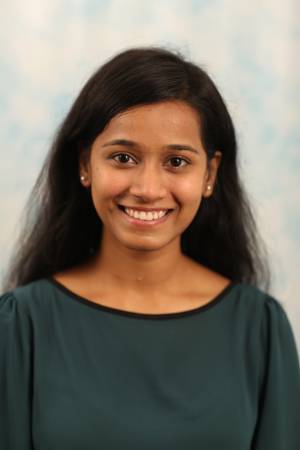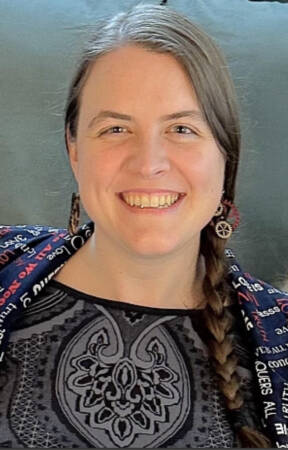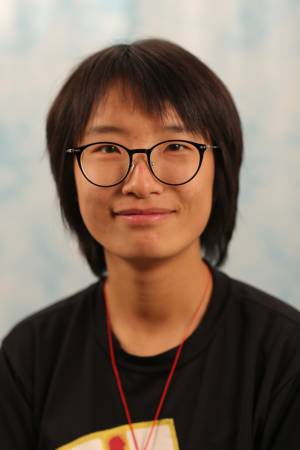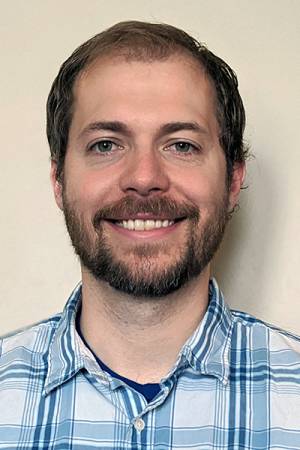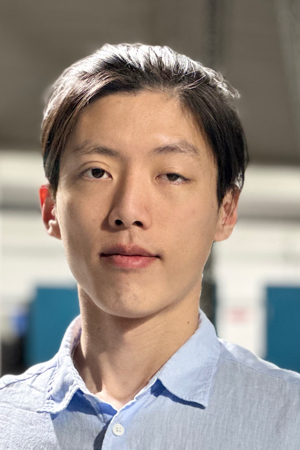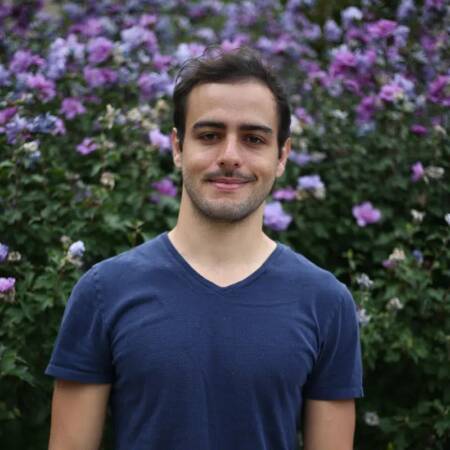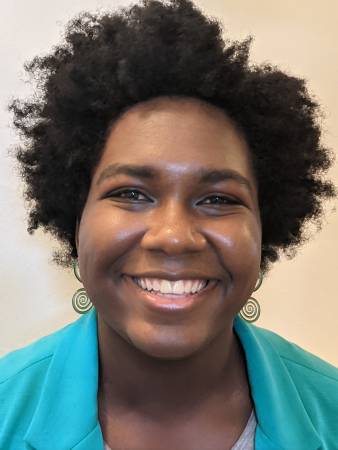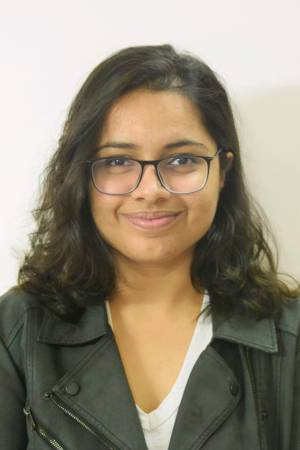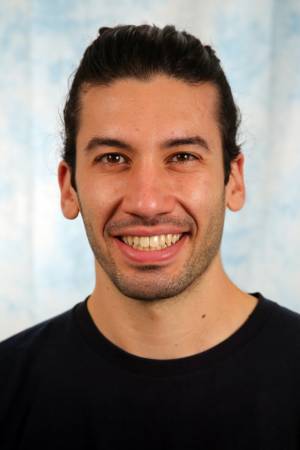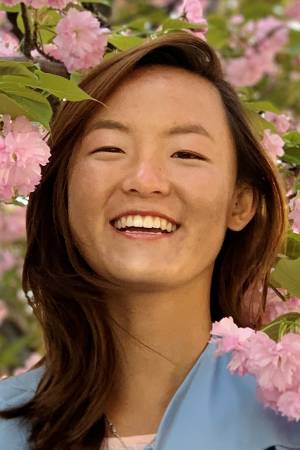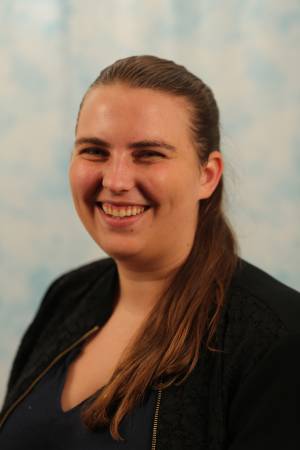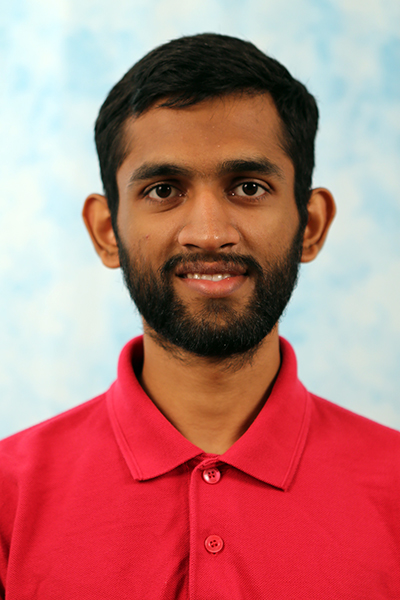RI Faculty Business Meeting
Meeting for RI Faculty. Discussions include various department topics, policies, and procedures. Generally meets weekly.
Robots at the Johnson Space Center and Future Plans
Abstract: The seminar will review a series of robotic systems built at the Johnson Space Center over the last 20 years. These will include wearable robots (exoskeletons, powered gloves and jetpacks), manipulation systems (ISS cranes down to human scale) and lunar mobility systems (human surface mobility and robotic rovers). As all robotics presentations should, this [...]
Biometrics in a Deep Learning World
Abstract: Biometrics is the science of recognizing individuals based on their physical and behavioral attributes such as fingerprints, face, iris, voice and gait. The past decade has witnessed tremendous progress in this field, including the deployment of biometric solutions in diverse applications such as border security, national ID cards, amusement parks, access control, and smartphones. [...]
Towards Robotic Tree Manipulation: Leveraging Graph Representations
Abstract: There is growing interest in automating agricultural tasks that require intricate and precise interaction with specialty crops, such as trees and vines. However, developing robotic solutions for crop manipulation remains a difficult challenge due to complexities involved in modeling their deformable behavior. In this study, we present a framework for learning the deformation behavior [...]
Tracking Any”Thing” in Videos
Abstract: Being able to track anything is one of the fundamental steps to parse and understand a video. In this talk, I will present two pieces of work that tackle this problem at different spatial granularities. In the first half of the talk, I will discuss tracking any video pixel or particle through time in [...]
Exploring Diverse Interaction Types for Human in the Loop Robot Learning
Abstract: Teaching sessions between humans and robots will need to be maximally informative for optimal robot learning and to ease the human’s teaching burden. However, the bulk of prior work considers one or two modalities through which a human can convey information to a robot—namely, kinesthetic demonstrations and preference queries. Moreover, people will teach robots [...]
Learning Generalizable Robot Skills for Dynamic and Interactive Tasks
Abstract: Enabling robots to perform complex dynamic tasks such as picking up an object in one sweeping motion or pushing off a wall to quickly turn a corner is a challenging problem. The dynamic interactions implicit in these tasks are critical for successful task execution. Furthermore, given the interactive nature of such tasks, safety, in [...]
Customizing Large-scale Text-to-Image Models
Abstract: Advancements in large-scale generative models represent a watershed moment. These models can generate a wide variety of objects and scenes with different styles and compositions. However, these models are trained on a fixed snapshot of available data and often contain copyrighted or private images. This assumption makes them lacking in two aspects – (a) [...]
Building Robot Hands and Teaching Dexterity
Abstract: Our shared dream is to have robot humanoids with hands complete similar tasks that humans do. While there are a few robot hands available today, the popular opinion is that they are difficult to use, expensive, and hard to obtain which precludes their ubiquitous usage. We argue that this is not an inherent problem [...]
Neural World Models
Abstract: Computer vision researchers have pushed the limits of performance in perception tasks involving natural images to near saturation. With self-supervised inference driven by recent advancements in generative modeling, it can be debated that the era of large image models is coming to a close, ushering in an era focused on video. However, it's worth [...]
How to Design Robotic Hands That Wield Tools
Abstract: Tool manipulation is an essential human skill. It extends our manipulation capability beyond the capability of the biological hand, and is a defining feature of many important jobs centered on physical interaction with the real world. Yet, wielding a tool is drastically different from generally grasping an object. The prime examples are pens and [...]
Becoming Teammates: Designing Assistive, Collaborative Machines
Abstract: The growing power in computing and AI promises a near-term future of human-machine teamwork. In this talk, I will present my research group’s efforts in understanding the complex dynamics of human-machine interaction and designing intelligent machines aimed to assist and collaborate with people. I will focus on 1) tools for onboarding machine teammates and [...]
Robotics Institute Winter Party
Please join us for some fun, food, beverages and conversation! All RI faculty, staff, students and visitors are invited to the Robotics Institute Winter Party! We apologize but due to space limitations in the Atrium we regretfully cannot include family or other non-RI guests.
Learning Local Heuristics in Heuristic Search
Abstract: Motion planning is a fundamental problem in robotics; how can we move robots efficiently and safely? Motion planning can be solved using several paradigms with their own strengths and weaknesses. This talk dives into Heuristic Graph Search and its application to motion planning by converting it to a problem of finding a start-goal path [...]
Low-Cost Multimodal Sensing and Dexterity for Deformable Object Manipulation
Abstract: To integrate robots seamlessly into daily life, they must be able to handle a variety of tasks in diverse environments, like assisting in hospitals or cooking in kitchens. Many of the items in these environments are deformable such as bedding in hospitals or vegetables in kitchens, and a certain level of dexterity is necessary [...]
Joint 2D and 3D Semi-Supervised Object Detection
Abstract: While numerous 3D detection works leverage the complementary relationship between RGB images and point clouds, developments in the broader framework of semi-supervised object recognition remain uninfluenced by multi-modal fusion. Current methods develop independent pipelines for 2D and 3D semi-supervised learning despite the availability of paired image and point cloud frames. Observing that the distinct [...]
New Methods for Satellite Control
Abstract: Since 2003, the number of satellites launched into orbit has grown from 100 per year to over 2000 per year. Over that same timeframe, incredible advances have been made in control systems for terrestrial robotics and autonomy. Despite the increased quantity of satellites in orbit and the advances made in terrestrial control systems, satellite [...]
[MSR Thesis Talk] Development and Testing of a Software Stack for an Autonomous Racing Vehicle
Abstract: Autonomous racing aims to replicate the human racecar driver with software and sensors. As in traditional motorsports, Autonomous Racing Vehicles (ARVs) are pushed to their dynamic limits in multi-agent scenarios at high (>= 100mph) speeds. This Operational Design Domain (ODD) presents unique challenges across the autonomy stack. The Indy Autonomous Challenge (IAC) is an [...]
[MSR Thesis Talk] Kitchen Robot Case Studies: Learning Manipulation Tasks from Human Video Demonstrations
Abstract: The vision of integrating a robot into the kitchen, capable of acting as a chef, remains a sought-after goal in robotics. Current robotic systems, mostly programmed for specific tasks, fall short in versatility and adaptability to a diverse culinary environment. While significant progress has been made in robotic learning, with advancements in behavior cloning, [...]
Towards Agile Robotics: Creating Push-Off Skills for Dynamic Interactions
Abstract: Dynamic interactions play a fundamental role in human capabilities, enabling us to achieve a wide range of tasks such as moving heavy objects, manipulating our surroundings, and changing directions rapidly and safely. In contrast, most conventional robotic systems lack this level of agility and cannot perform dynamic interactions, limiting their potential in practical applications. [...]
Learning Safe Human-Robot Interactions for a Seamlessly Shared Airspace
Abstract: The growing need for fully autonomous aerial operations in shared spaces, necessitates the development of reliable agents capable of navigating safely and seamlessly alongside uncertain human agents. In response, we advocate endowing autonomous agents with the ability to predict human actions, comprehend and ground abstract rules in the action space, and embrace the uncertainty [...]
Generative Evolutionary Search with Diffusion Models for Trajectory Optimization
Abstract: Diffusion models excel at modeling complex and multimodal trajectory distributions for decision-making and control. Reward-gradient guided denoising has been recently proposed to generate trajectories that maximize both a differentiable reward function and the likelihood under the data distribution captured by a diffusion model. Reward-gradient guided denoising requires a differentiable reward function fitted to both [...]
Tartancalib: Iterative Wide-Angle Lens Calibration
Abstract: Mobile vision systems greatly benefit from the large field-of-view enabled by wide-angle lenses. Accurate and robust intrinsic calibration is a critical prerequisite for leveraging this property. Calibrating wide-angle lenses with current state-of-the-art techniques yields poor results due to extreme distortion at the edge. In this work, we present TartanCalib, an accurate and robust method [...]
Sample-Efficient Reinforcement Learning with applications in Nuclear Fusion
Abstract: In many practical applications of reinforcement learning (RL), it is expensive to observe state transitions from the environment. In the problem of plasma control for nuclear fusion, the motivating example of this thesis, determining the next state for a given state-action pair requires querying an expensive transition function which can lead to many hours [...]
[MSR Thesis Talk] Neural Implicit Representations for Medical Ultrasound Volumes and 3D Anatomy-specific Reconstructions
Abstract: Most Robotic Ultrasound Systems (RUSs) equipped with ultrasound-interpreting algorithms rely on building 3D reconstructions of the entire scanned region or specific anatomies. These 3D reconstructions are typically created via methods that compound or stack 2D tomographic ultrasound images using known poses of the ultrasound transducer with the latter requiring 2D or 3D segmentation. While fast, this class [...]
Social Navigation with Pedestrian Groups
Abstract: Autonomous navigation in human crowds (i.e., social navigation) presents several challenges: The robot often needs to rely on its noisy sensors to identify and localize pedestrians in human crowds; the robot needs to plan efficient paths to reach its goals; the robot needs to do so in a safe and socially appropriate manner. Recent [...]
Zero-Shot Video Question Answering with Procedural Programs
Abstract: We propose to answer zero-shot questions about videos by generating short procedural programs that derive a final answer from solving a sequence of visual subtasks. We present Procedural Video Querying (ProViQ), which uses a large language model to generate such programs from an input question and an API of visual modules in the prompt, [...]
RI Faculty Business Meeting
Meeting for RI Faculty. Discussions include various department topics, policies, and procedures. Generally meets weekly.
[MSR Thesis Talk] Enhancing RHex Robot Performance with Innovative Bioplastic Legs Responsive to Humidity
Abstract: Designing and developing robots that can effectively navigate real-world environments poses a significant challenge. To overcome this, many robotic systems draw inspiration from the adaptive behaviors of animals, which have evolved to thrive in diverse surroundings. Amphibious animals, for instance, seamlessly transition between walking and swimming, optimizing their locomotion efficiency based on environmental cues. [...]
Informative Path Planning Toward Autonomous Real-World Applications
Abstract: Gathering information from the physical world plays a crucial role in many applications—whether it be scientific research, environmental monitoring, search and rescue, defense, or disaster response. The utilization of robots for information gathering allows for the leveraging of intelligent algorithms to efficiently collect data, providing critical insights and facilitating informed decision-making. These autonomous robots [...]
Alignment for Vision-Language Foundation Model
Abstract: Recent advancements in vision-language foundation models, exemplified by GPT4-Vision and DALL-E 3, have significantly transformed both research and practical applications, ranging from professional assistance to content creation. However, aligning them precisely with specific user goals presents a notable challenge. This thesis introduces innovative strategies for improving this alignment. I will first introduce our novel [...]
Efficient Sensor Coverage in Complex Environments
Abstract: This thesis develops sensor coverage algorithms for mobile robots that are scalable to large and complex environments. The core challenge is computing the shortest paths that can direct one or more robots to sweep onboard sensors over all accessible surfaces within an environment. This problem resembles the watchman route problem that is known to [...]
Reconstructing 3D Humans from Visual Data
Abstract: Abstract: Understanding humans in visual content is fundamental for numerous computer vision applications. Extensive research has been conducted in the field of human pose estimation (HPE) to accurately locate joints and construct body representations from images and videos. Expanding on HPE, human mesh recovery (HMR) addresses the more complex task of estimating the 3D pose [...]
Improving Kalman Filter-based Multi-Object Tracking in Occlusion and Non-linear Motion
Abstract: Modern methods solve multi-object tracking from two perspectives: motion modeling and appearance matching. As a classic paradigm, motion-based tracking by Kalman filters suffers from complicated motion patterns and the problem becomes more difficult when we only have noisy bounding boxes. To improve Kalman filter-based multi-object tracking in scenarios with complex motion, occlusion, and crossover, [...]
Improving Kalman Filter-based Multi-Object Tracking in Occlusion and Non-linear Motion
Abstract: Modern methods solve multi-object tracking from two perspectives: motion modeling and appearance matching. As a classic paradigm, motion-based tracking by Kalman filters suffers from complicated motion patterns and the problem becomes more difficult when we only have noisy bounding boxes. To improve Kalman filter-based multi-object tracking in scenarios with complex motion, occlusion, and crossover, [...]
Design Iteration of Dexterous Compliant Robotic Manipulators
Abstract: The goal of personal robotics is to have robots in homes performing everyday tasks efficiently to improve our quality of life. Towards this end, manipulators are needed which are low cost, safe around humans, and approach human-level dexterity. However, existing off-the-shelf manipulators are expensive both in cost and manufacturing time, difficult to repair, and [...]
Continual Learning of Compositional Skills for Robust Robot Manipulation
Abstract: Real world robots need to continuously learn new manipulation tasks in a lifelong learning manner. These new tasks often share many sub-structures e.g. sub-tasks, controllers, preconditions, with previously learned tasks. To utilize these shared sub-structures, we explore a compositional and object-centric approach to learn manipulation tasks. The first part of this thesis focuses on [...]
Towards Energy-Efficient Techniques and Applications for Universal AI Implementation
Abstract: The rapid advancement of large-scale language and vision models has significantly propelled the AI domain. We now see AI enriching everyday life in numerous ways – from community and shared virtual reality experiences to autonomous vehicles, healthcare innovations, and accessibility technologies, among others. Central to these developments is the real-time implementation of high-quality deep [...]
RI Faculty Business Meeting
Meeting for RI Faculty. Discussions include various department topics, policies, and procedures. Generally meets weekly.
Watch, Practice, Improve: Towards In-the-wild Manipulation
Abstract: The longstanding dream of many roboticists is to see robots perform diverse tasks in diverse environments. To build such a robot that can operate anywhere, many methods train on robotic interaction data. While these approaches have led to significant advances, they rely on heavily engineered setups or high amounts of supervision, neither of which [...]
Structure-from-Motion Meets Self-supervised Learning
Abstract: How to teach machine to perceive 3D world from unlabeled videos? We will present new solution via incorporating Structure-from-Motion (SfM) into self-supervised model learning. Given RGB inputs, deep models learn to regress depth and correspondence. With the two inputs, we introduce a camera localization algorithm that searches for certified global optimal poses. However, the [...]
Combining Physics-Based Light Transport and Neural Fields for Robust Inverse Rendering
Abstract: Inverse rendering — the process of recovering shape, material, and/or lighting of an object or environment from a set of images — is essential for applications in robotics and elsewhere, from AR/VR to perception on self-driving vehicles. While it is possible to perform inverse rendering from color images alone, it is often far easier [...]
Improving the Transparency of Agent Decision Making to Humans Using Demonstrations
Abstract: For intelligent agents (e.g. robots) to be seamlessly integrated into human society, humans must be able to understand their decision making. For example, the decision making of autonomous cars must be clear to the engineers certifying their safety, passengers riding them, and nearby drivers negotiating the road simultaneously. As an agent's decision making depends [...]
Robotic Climbing for Extreme Terrain Exploration
Abstract: Climbing robots can operate in steep and unstructured environments that are inaccessible to other ground robots, with applications ranging from the inspection of artificial structures on Earth to the exploration of natural terrain features throughout the solar system. Climbing robots for planetary exploration face many challenges to deployment, including mass restrictions, irregular surface features, [...]
Layout Design for Large-Scale Multi-Robot Coordination
Abstract: Today, thousands of robots are navigating autonomously in warehouses, transporting goods from one location to another. While numerous planning algorithms are developed to coordinate robots more efficiently and robustly, warehouse layouts remain largely unchanged – they still adhere to the traditional pattern designed for human workers rather than robots. In this talk, I will [...]
Perception amidst interaction: spatial AI with vision and touch for robot manipulation
Abstract: Robots currently lack the cognition to replicate even a fraction of the tasks humans do, a trend summarized by Moravec's Paradox. Humans effortlessly combine their senses for everyday interactions—we can rummage through our pockets in search of our keys, and deftly insert them to unlock our front door. Before robots can demonstrate such dexterity, [...]
Toward Human-Centered XR: Bridging Cognition and Computation
Abstract: Virtual and Augmented Reality enables unprecedented possibilities for displaying virtual content, sensing physical surroundings, and tracking human behaviors with high fidelity. However, we still haven't created "superhumans" who can outperform what we are in physical reality, nor a "perfect" XR system that delivers infinite battery life or realistic sensation. In this talk, I will discuss some of our [...]
Carnegie Mellon Graphics Colloquium: C. Karen Liu : Building Large Models for Human Motion
Building Large Models for Human Motion Large generative models for human motion, analogous to ChatGPT for text, will enable human motion synthesis and prediction for a wide range of applications such as character animation, humanoid robots, AR/VR motion tracking, and healthcare. This model would generate diverse, realistic human motions and behaviors, including kinematics and dynamics, [...]
Teaching a Robot to Perform Surgery: From 3D Image Understanding to Deformable Manipulation
Abstract: Robot manipulation of rigid household objects and environments has made massive strides in the past few years due to the achievements in computer vision and reinforcement learning communities. One area that has taken off at a slower pace is in manipulating deformable objects. For example, surgical robotics are used today via teleoperation from a [...]
Zeros for Data Science
Abstract: The world around us is neither totally regular nor completely random. Our and robots’ reliance on spatiotemporal patterns in daily life cannot be over-stressed, given the fact that most of us can function (perceive, recognize, navigate) effectively in chaotic and previously unseen physical, social and digital worlds. Data science has been promoted and practiced [...]
RI Faculty Business Meeting
Meeting for RI Faculty. Discussions include various department topics, policies, and procedures. Generally meets weekly.
Emotion perception: progress, challenges, and use cases
Abstract: One of the challenges Human-Centric AI systems face is understanding human behavior and emotions considering the context in which they take place. For example, current computer vision approaches for recognizing human emotions usually focus on facial movements and often ignore the context in which the facial movements take place. In this presentation, I will [...]
[MSR Thesis Talk] SplaTAM: Splat, Track & Map 3D Gaussians for Dense RGB-D SLAM
Abstract: Dense simultaneous localization and mapping (SLAM) is crucial for numerous robotic and augmented reality applications. However, current methods are often hampered by the non-volumetric or implicit way they represent a scene. This talk introduces SplaTAM, an approach that leverages explicit volumetric representations, i.e., 3D Gaussians, to enable high-fidelity reconstruction from a single unposed RGB-D [...]
Language: You’ve probably heard of it, read it, written it, gestured it, mimed it… Why can’t robots?
Abstract: Language is how meaning is conveyed between humans, and now the basis of foundation models. By implication, it's the most important modality for all of AGI and will replace the entire robotics control stack as the most important thing for all of us to work on.
RI Faculty Business Meeting
Meeting for RI Faculty. Discussions include various department topics, policies, and procedures. Generally meets weekly.
Foundation Models for Robotic Manipulation: Opportunities and Challenges
Abstract: Foundation models, such as GPT-4 Vision, have marked significant achievements in the fields of natural language and vision, demonstrating exceptional abilities to adapt to new tasks and scenarios. However, physical interaction—such as cooking, cleaning, or caregiving—remains a frontier where foundation models and robotic systems have yet to achieve the desired level of adaptability and [...]
Learning with Less
Abstract: The performance of an AI is nearly always associated with the amount of data you have at your disposal. Self-supervised machine learning can help – mitigating tedious human supervision – but the need for massive training datasets in modern AI seems unquenchable. Sometimes it is not the amount of data, but the mismatch of [...]
Human Perception of Robot Failure and Explanation During a Pick-and-Place Task
Abstract: In recent years, researchers have extensively used non-verbal gestures, such as head and arm movements, to express the robot's intentions and capabilities to humans. Inspired by past research, we investigated how different explanation modalities can aid human understanding and perception of how robots communicate failures and provide explanations during block pick-and-place tasks. Through an in-person [...]
RI Faculty Business Meeting
Meeting for RI Faculty. Discussions include various department topics, policies, and procedures. Generally meets weekly.
Why We Should Build Robot Apprentices And Why We Shouldn’t Do It Alone
Abstract: For robots to be able to truly integrate human-populated, dynamic, and unpredictable environments, they will have to have strong adaptive capabilities. In this talk, I argue that these adaptive capabilities should leverage interaction with end users, who know how (they want) a robot to act in that environment. I will present an overview of [...]
Learning Distributional Models for Relative Placement
Abstract: Relative placement tasks are an important category of tasks in which one object needs to be placed in a desired pose relative to another object. Previous work has shown success in learning relative placement tasks from just a small number of demonstrations, when using relational reasoning networks with geometric inductive biases. However, such methods fail [...]
Robust Body Exposure (RoBE): A Graph-based Dynamics Modeling Approach to Manipulating Blankets over People
Abstract: Robotic caregivers could potentially improve the quality of life of many who require physical assistance. However, in order to assist individuals who are lying in bed, robots must be capable of dealing with a significant obstacle: the blanket or sheet that will almost always cover the person's body. We propose a method for targeted [...]
Exploration for Continually Improving Robots
Abstract: General purpose robots should be able to perform arbitrary manipulation tasks, and get better at performing new ones as they obtain more experience. The current paradigm in robot learning involves imitation or simulation. Scaling these approaches to learn from more data for various tasks is bottle-necked by human labor required either in collecting demonstrations [...]
Sparse-view 3D in the Wild
Abstract: Reconstructing 3D scenes and objects from images alone has been a long-standing goal in computer vision. We have seen tremendous progress in recent years, capable of producing near photo-realistic renderings from any viewpoint. However, existing approaches generally rely on a large number of input images (typically 50-100) to compute camera poses and ensure view [...]
Deep 3D Geometric Reasoning for Robot Manipulation
Abstract: To solve general manipulation tasks in real-world environments, robots must be able to perceive and condition their manipulation policies on the 3D world. These agents will need to understand various common-sense spatial/geometric concepts about manipulation tasks: that local geometry can suggest potential manipulation strategies, that policies should be invariant across choice of reference frame, [...]
RI Faculty Business Meeting
Meeting for RI Faculty. Discussions include various department topics, policies, and procedures. Generally meets weekly.
Toward an ImageNet Moment for Synthetic Data
Abstract: Data, especially large-scale labeled data, has been a critical driver of progress in computer vision. However, many important tasks remain starved of high-quality data. Synthetic data from computer graphics is a promising solution to this challenge, but still remains in limited use. This talk will present our work on Infinigen, a procedural synthetic data [...]
Imitating Shortest Paths in Simulation Enables Effective Navigation and Manipulation in the Real World
Abstract: We show that imitating shortest-path planners in simulation produces Stretch RE-1 robotic agents that, given language instructions, can proficiently navigate, explore, and manipulate objects in both simulation and in the real world using only RGB sensors (no depth maps or GPS coordinates). This surprising result is enabled by our end-to-end, transformer-based, SPOC architecture, powerful [...]
Probabilistic 3D Multi-Object Cooperative Tracking for Autonomous Driving via Differentiable Multi-Sensor Kalman Filter
This talk has been postponed […]
Towards diverse zero-shot manipulation via actualizing visual plans
Abstract: In this thesis, we seek to learn a generalizable goal-conditioned policy that enables zero-shot robot manipulation — interacting with unseen objects in novel scenes without test-time adaptation. Robots that can be reliably deployed out-of-the-box in new scenarios have the potential for helping humans in everyday tasks. Not requiring any test-time training through demonstrations or [...]
Deep Learning for Sensors: Development to Deployment
Abstract: Robots rely heavily on sensing to reason about physical interactions, and recent advancements in rapid prototyping, MEMS sensing, and machine learning have led to a plethora of sensing alternatives. However, few of these sensors have gained widespread use among roboticists. This thesis proposes a framework for incorporating sensors into a robot learning paradigm, from [...]
Offline Learning for Stochastic Multi-Agent Planning in Autonomous Driving
Abstract: Fully autonomous vehicles have the potential to greatly reduce vehicular accidents and revolutionize how people travel and how we transport goods. Many of the major challenges for autonomous driving systems emerge from the numerous traffic situations that require complex interactions with other agents. For the foreseeable future, autonomous vehicles will have to share the [...]
Teruko Yata Memorial Lecture
Human-Centric Robots and How Learning Enables Generality Abstract: Humans have dreamt of robot helpers forever. What's new is that this dream is becoming real. New developments in AI, building on foundations of hardware and passive dynamics, enable vastly improved generality. Robots can step out of highly structured environments and become more human-centric: operating in human [...]
2024 Robotics Institute National Robotics Week Celebration Tours and Demos
April 12 1:00 - 4:00 pm: PUBLIC SPACE ROBOTS Open to the public TANK the roboceptionist Newell-Simon Hall 3rd floor entry area Meet Marion (Tank) LeFleur, Newell-Simon’s Roboceptionist. He’ll be glad to see you! The goal of the project is to produce a robot helpmate that is useful, exhibits social competence, and remains compelling to [...]
Creating robust deep learning models involves effectively managing nuisance variables
Abstract: Over the past decade, we have witnessed significant advances in capabilities of deep neural network models in vision and machine learning. However, issues related to bias, discrimination, and fairness in general, have received a great deal of negative attention (e.g., mistakes in surveillance and animal-human confusion of vision models). But bias in AI models [...]
Transfer Learning via Temporal Contrastive Learning Inbox
Abstract: This thesis introduces a novel transfer learning framework for deep reinforcement learning. The approach automatically combines goal-conditioned policies with temporal contrastive learning to discover meaningful sub-goals. The approach involves pre-training a goal-conditioned agent, finetuning it on the target domain, and using contrastive learning to construct a planning graph that guides the agent via sub-goals. Experiments [...]
Towards Influence-Aware Safe Human-Robot Interaction
Abstract: In recent years, we have seen through recommender systems on social media how influential (and potentially harmful) algorithms can be in our lives, sometimes creating polarization and conspiracies that lead to unsafe behavior. Now that robots are also growing more common in the real world, we must be very careful to ensure that they [...]
Learning to Manipulate beyond Imitation
Abstract: Imitation learning has been a prevalent approach for teaching robots manipulation skills but still suffers from scalability and generalizability. In this talk, I'll argue for going beyond elementary behavioral imitation from human demonstrations. Instead, I'll present two key directions: 1) Creating Manipulation Controllers from Pre-Trained Representations, and 2) Representing Video Demonstrations with Parameterized Symbolic [...]
Advanced robotics for manufacturing: challenges and opportunities
Abstract: Presenting projects with ARM Institute (including robot grinding, human-robot collaboration, and modularized manufacturing) and discussing some new opportunities in applying AI and robotics in manufacturing domain.
Improving Robot Capabilities Through Reconfigurability
Abstract: Advancements in robot capabilities are often achieved through integrating more hardware components. These hardware additions often lead to systems with high power consumption, fragility, and difficulties in control and maintenance. However, is this approach the only path to enhancing robot functionality? In this talk, I introduce the PuzzleBots, a modular multi-robot system with passive [...]
RI Faculty Business Meeting
Meeting for RI Faculty. Discussions include various department topics, policies, and procedures. Generally meets weekly.
Reduced-Gravity Flights and Field Testing for Lunar and Planetary Rovers
Abstract: As humanity returns to the Moon and is developing outposts and related infrastructure, we need to understand how robots and work machines will behave in this harsh environment. It is challenging to find representative testing environments on Earth for Lunar and planetary rovers. To investigate the effects of reduced-gravity on interactions with granular terrains, [...]
Design Principles for Robotics Systems that Support Human-Human Collaborative Learning
Abstract: Robots possess unique affordances granted by combining software and hardware. Most existing research focuses on the impact of these affordances on human-robot collaboration, but the theory of how robots can facilitate human-human collaboration is underdeveloped. Such theory would be beneficial in education. An educational device can afford collaboration in both assembly and use. This [...]
Leveraging Parallelism to Accelerate Quadratic Program Solvers for MPC
Abstract: Many problems in robotics can be formulated as quadratic programs (QPs). In particular, model-predictive control problems often involve repeatedly solving QPs at very high rates (up to kilohertz). However, while other areas of robotics like machine learning have achieved high performance by taking advantage of parallelism on modern computing hardware, state-of-the-art algorithms for solving [...]
Shedding Light on 3D Cameras
Abstract: The advent (and commoditization) of low-cost 3D cameras is revolutionizing many application domains, including robotics, autonomous navigation, human computer interfaces, and recently even consumer devices such as cell-phones. Most modern 3D cameras (e.g., LiDAR) are active; they consist of a light source that emits coded light into the scene, i.e., its intensity is modulated over [...]
Robust Incremental Distributed Collaborative Simultaneous Localization and Mapping
Abstract: Multi-robot teams show exceptional promise across applications like Search-and-Rescue, disaster-response, agriculture, forestry, and scientific exploration due to their ability to go where humans cannot, parallelize activity, operate robustly to failures, and expand capabilities beyond that of an individual robot. Collaborative Simultaneous Localization and Mapping (C-SLAM) is a fundamental capability for these multi-robot teams as [...]
Towards Equitable Representation in Text-to-Image Generation
Abstract: Accurate representation in media is known to improve the well-being of the people who consume it. There is a growing concern about the increasing use of generative AI in media as the generative image models trained on large web-crawled datasets such as LAION are known to produce images with harmful stereotypes and misrepresentations of various groups, [...]
3D Inference from Unposed Sparse View Images
Abstract: We propose UpFusion, a system that can perform novel view synthesis and infer 3D representations for generic objects given a sparse set of reference images without corresponding pose information. Current sparse-view 3D inference methods typically rely on camera poses to geometrically aggregate information from input views, but are not robust in-the-wild when such information [...]
Tightly Coupled LIDAR-Inertial Odometry
Abstract: In the age of self-driving, LIDAR and IMU represent two of the most ubiqui- tous sensors in use. Kalman Filtering and loosely coupled approaches dominate industry techniques, while current research trends towards a more tightly coupled formulation involving a joint optimization of IMU and LIDAR measurements. After two years of experience working with and [...]
A Unified Control Framework for Robust Aerial Manipulation
Abstract: Aerial robots are now widely employed in diverse applications, such as delivery, environmental monitoring, and especially aerial manipulation—the focus of this thesis. Aerial manipulation involves integrating robotic arms with drones to perform physical tasks remotely. This capability is particularly crucial for operations that are either too dangerous or inaccessible for humans, such as high-altitude [...]
In Pursuit of Open-World Mobile Manipulation
Abstract: Deploying robots in open-ended unstructured environments such as homes has been a long-standing research problem. However, robots are often studied only in closed-off lab settings, and prior mobile manipulation work is restricted to pick-move-place, which is arguably just the tip of the iceberg in this area. In this thesis, we introduce the Open-World Mobile [...]
Carnegie Mellon University
Geometric Heuristics Enhance POCUS AI for Pneumothorax
Abstract: The interpretation of Point-of-care ultrasound (POCUS) images poses a challenge due to the scarcity of high-quality labelled data for training AI models in the medical domain. To address this limitation, novel methodologies were developed to train POCUS AI models using limited data, integrating geometric heuristics derived from expert clinicians. Focused on diagnosing pneumothorax, heuristics [...]
Optimal Control and Robot Learning on Agile Safety-Critical Systems
Abstract: We present a pipeline of optimal control methods for learning an optimal control policy and locally accurate dynamics models for agile and safety-critical robots using autonomous racing as an application example. We introduce Spline-Opt, a fast offline/online optimization and planning method that can produce a reasonably good initial optimal trajectory given very little dynamics [...]
Vision Model Diagnosis and Improvement Via Large Pretrained Models
Abstract: As AI becomes increasingly pervasive in real-world applications, the deployment of machine learning models in real-world applications has underscored critical challenges in model robustness, fairness and performance. Despite significant advances, existing models often exhibit biases, fail to generalize across diverse data distributions, and struggle with unexpected input variations, leading to suboptimal or even discrimina- [...]
Beyond Robot Safety: Adaptability and Interactivity
Abstract: The deployment of autonomous robots in various areas, including transportation and human-robot collaboration, requires strong safety measures for effective interaction with the physical world. Traditional safe control algorithms work well in controlled settings but struggle to adapt to more interactive and unpredictable real-world scenarios. This thesis emphasizes the need to explore beyond traditional robot [...]
RI Faculty Business Meeting
Meeting for RI Faculty. Discussions include various department topics, policies, and procedures. Generally meets weekly.
Indoor Localization and Mapping with 4D mmWave Imaging Radar
Abstract: State estimation is a crucial component for the successful implementation of robotic systems, relying on sensors such as cameras, LiDAR, and IMUs. However, in real-world scenarios, the performance of these sensors is degraded by challenging environments, e.g. adverse weather conditions and low-light scenarios. The emerging 4D imaging radar technology is capable of providing robust perception in adverse conditions. [...]
PIE-FRIDA: Personalized Interactive Emotion-Guided Collaborative Human-Robot Art Creation
Abstract: The introduction of generative AI has brought about many improvements in the artistic world. It allows many individuals to create artwork via simple descriptive text prompts. This has, in particular, created an avenue for non-artistic individuals to express their thoughts through generated art. Our work focuses on how emotion can be added as an [...]
Where’s RobotGPT?
Abstract: The last years have seen astonishing progress in the capabilities of generative AI techniques, particularly in the areas of language and visual understanding and generation. Key to the success of these models are the use of image and text data sets of unprecedented scale along with models that are able to digest such large [...]
Carnegie Mellon University
Spectral Mapping using Simple Sensors
Abstract: Spectral mapping holds significant importance in many exploration endeavors as it facilitates a deeper comprehension of material composition within a surveyed area. While imaging spectrometers excel in recording reflectance spectra into spectral maps, their large physical footprint, substantial power requirements, and operational intricacies render them unsuitable for integration into small rovers or resource-constrained missions. [...]
Neural Field Representations of Mobile Computational Photography
Abstract: Burst imaging pipelines allow cellphones to compensate for less-than-ideal optical and sensor hardware by computationally merging multiple lower-quality images into a single high-quality output. The main challenge for these pipelines is compensating for pixel motion, estimating how to align and merge measurements across time while the user's natural hand tremor involuntarily shakes the camera. In [...]
Simulated Encounters of the Third Kind: Scenario-Based Approach to Designing Guide Robots
Abstract: Navigating through unfamiliar environments is a challenging task. For people who are blind or have low vision (BLV), navigation can be particularly daunting. Guide robots are a type of service robot that can assist BLV people with navigation tasks. A significant amount of research related to guide robots has focused on technical contributions, while a [...]
Composing Generative and Discriminative Models for Better Generalization
Abstract: Computer Vision is Correspondence, correspondence, correspondence! Inspite of the singular definition of computer vision, we still have two broad categories of approaches in the literature. Generative Models, like Stable Diffusion, learn a correspondence between image and text modality, while learning a mapping from text to image. Discriminative Models, like CLIP, on the other hand [...]
Lower Bounds for Moving Target Traveling Salesman Motion Planning with Obstacles
Abstract: We study the problem of finding a trajectory for an agent to intercept a number of moving targets while avoiding obstacles. Applications include resupplying naval ships at sea and recharging aerial vehicles with a ground vehicle. We model the problem as an extension of the traveling salesman problem, which we refer to as the [...]
Towards Pragmatic Time Series Intelligence
Abstract: The widespread adoption of time series machine learning (ML) models faces multiple challenges involving data, modeling and evaluation. Data. Modern ML models depend on copious amounts of cohesive and reliably annotated data for training and evaluation. However, labeled data is not always available and reliable, and can also be dispersed across different locations. We [...]
Probabilistic 3D Multi-Object Cooperative Tracking for Autonomous Driving via Differentiable Multi-Sensor Kalman Filter
Abstract: Current state-of-the-art autonomous driving vehicles mainly rely on each individual sensor system to perform perception tasks. Such a framework's reliability could be limited by occlusion or sensor failure. To address this issue, more recent research proposes using vehicle-to-vehicle (V2V) communication to share perception information with others. However, most relevant works focus only on cooperative [...]
Super Odometry: Selective Fusion Towards All-degraded Environments
Abstract: Robust odometry is at the core of robotics and autonomous systems operating navigation, exploration, and locomotion in complex environments for a broad spectrum of applications. While great progress has been made, the robustness of the odometry system still remains a grand challenge. This talk introduces Super Odometry, an approach that leverages selective fusion to [...]
Improved Surface Estimation for use in Virtual Fixtures during Retinal Surgery
Abstract: Retinal surgery procedures require surgeons to manipulate very delicate tissues with little room for error. During epiretinal membrane surgery, to reduce chances of recurrence, surgeons may have to remove the 10 µm thick internal limiting membrane from the retinal surface. An experimental procedure to treat retinal vein occlusion is retinal vein cannulation. During this [...]
Causal Robot Learning for Manipulation
Abstract: Two decades into the third age of AI, the rise of deep learning has yielded two seemingly disparate realities. In one, massive accomplishments have been achieved in deep reinforcement learning, protein folding, and large language models. Yet, in the other, the promises of deep learning to empower robots that operate robustly in real-world environments [...]
Robot Learning by Understanding Egocentric Videos
Abstract: True gains of machine learning in AI sub-fields such as computer vision and natural language processing have come about from the use of large-scale diverse datasets for learning. In this talk, I will discuss how we can leverage large-scale diverse data in the form of egocentric videos (first-person videos of humans conducting different tasks) [...]
Special Seminar
Speaker: Abhisesh Silwal Title: Robotics and AI for Sustainable Agriculture Abstract: Production agriculture plays a critical role in our lives, providing food security and enabling sustainability. Despite its immense importance, it currently faces many challenges including shortage of farmworkers, increasing production costs, excess use of herbicides just to name a few. Robotics and artificial intelligence-based [...]
Learning to Manipulate Using Diverse Datasets
Abstract: Autonomous agents can play games (like Chess, Go, and even Starcraft), they can help make complex scientific predictions (e.g., protein folding), and they can even write entire computer programs, with just a bit of prompting. However, even the most basic physical manipulation skills, like unlocking and opening a door, still remain literally out-of-reach. The [...]
Passive Ultra-Wideband Single-Photon Imaging
Abstract: High-speed light sources, fast cameras, and depth sensors have made it possible to image dynamic phenomena occurring in ever smaller time intervals with the help of actively-controlled light sources and synchronization. Unfortunately, while these techniques do capture ultrafast events, they cannot simultaneously capture slower ones too. I will discuss our recent work on passive ultra-wideband [...]
3D Perception In-The-Wild
Abstract: State estimation is a fundamental component of embodied perception. Contemporary autonomous vehicle (AV) benchmarks have advanced techniques for training 3D detectors, particularly on large-scale data. Notably, although prior work has nearly solved 3D object detection for a few common classes (e.g., pedestrian and car), detecting many rare classes in-the-tail (e.g., debris and stroller) remains [...]
Learning on the Move: Integrating Action and Perception for Mobile Manipulation
Abstract: While there has been remarkable progress recently in the fields of manipulation and locomotion, mobile manipulation remains a long-standing challenge. Compared to locomotion or static manipulation, a mobile system must make a diverse range of long-horizon tasks feasible in unstructured and dynamic environments. While the applications are broad and interesting, there are a plethora [...]
Differentiable Convex Modeling for Robotic Planning and Control
Abstract: Robotic simulation, planning, estimation, and control, have all been built on top of numerical optimization. In this same time, modern convex optimization has matured into a robust technology delivering globally optimal solutions in polynomial time. With advances in differentiable optimization and custom solvers capable of producing smooth derivatives, convex modeling has become fast, reliable, [...]
Simulation-Driven Soft Robotics
Abstract: Soft-bodied robots present a compelling solution for navigating tight spaces and interacting with unknown obstacles, with potential applications in inspection, medicine, and AR/VR. Yet, even after a decade, soft robots remain largely in the prototype phase without scaling to the tasks where they show the most promise. These systems are difficult to design and [...]
Plan to Learn: Active Robot Learning by Planning
Abstract: Robots need a diverse repertoire of capable motor skills to succeed in the open world. Such a skillset cannot be learned or designed purely on human initiative. In this thesis, we advocate for an active continual learning approach that enables robots to take charge of their own learning. The goal of an autonomously learning [...]
RI Faculty Business Meeting
Meeting for RI Faculty. Discussions include various department topics, policies, and procedures. Generally meets weekly.
Continual Personalization of Human Actions with Prompt Tuning
Abstract: In interactive computing devices (VR/XR headsets), users interact with the virtual world using hand gestures and body actions. Typically, models deployed in such XR devices are static and limited to their default set of action classes. The goal of our research is to provide users and developers with the capability to personalize their experience by [...]
Policy Decomposition
Abstract: Optimal Control is a popular formulation for designing controllers for dynamic robotic systems. Under the formulation, the desired long-term behavior of the system is encoded via a cost function and the policy, i.e. a mapping from the state of the system to control commands, to achieve the desired behavior are obtained by solving an [...]
Analysis by Synthesis for Modern Computer Vision
Abstract: Image denoising, depth completion, scene flow, and dynamic 3D reconstruction are all examples of recovery problems: the estimation of multidimensional signals from corrupted or partial measurements. This thesis examines these problems from the classic analysis-by-synthesis perspective, where a signal model is used to propose hypotheses, which are then compared to observations. This paradigm has [...]
Reinforcement Learning with Spatial Reasoning for Dexterous Robotic Manipulation
Abstract: Robotic manipulation in unstructured environments requires adaptability and the ability to handle a wide variety of objects and tasks. This thesis presents novel approaches for learning robotic manipulation skills using reinforcement learning (RL) with spatially-grounded action spaces, addressing the challenges of high-dimensional, continuous action spaces and alleviating the need for extensive training data. Our [...]
Leveraging Vision, Force Sensing, and Language Feedback for Deformable Object Manipulation
Deformable object manipulation represents a significant challenge in robotics due to its complex dynamics, lack of low-dimensional state representations, and severe self-occlusions. This challenge is particularly critical in assistive tasks, where safe and effective manipulation of various deformable materials can significantly improve the quality of life for individuals with disabilities and address the growing needs [...]
CBGT-Net: A Neuromimetic Architecture for Robust Classification of Streaming Data
Abstract: This research introduces CBGT-Net, a neural network model inspired by the cortico-basal ganglia-thalamic (CBGT) circuits in mammalian brains, which are crucial for critical thinking and decision-making. Unlike traditional neural network models that generate an output for each input or after a fixed sequence of inputs, CBGT-Net learns to produce an output once sufficient evidence [...]
Information-Based Adaptive Allocation of Heterogeneous Multi-Agent Teams for Search and Coverage
Abstract: Information-based search and coverage are important in planetary exploration and disaster response applications. Efficient information acquisition can help with increasing geological understanding or situational awareness. Heterogeneous robots, each with different sensing and motion modalities, can be coordinated to optimize search and coverage in a target region. Information maps, which estimate the importance of visiting [...]
Enhancing Robot Perception and Interaction Through Structured Domain Knowledge
Abstract: Despite the advancements in deep learning driven by increased computational power and large datasets, significant challenges remain. These include difficulty in handling novel entities, limited mechanisms for human experts to update knowledge, and lack of interpretability, all of which are crucial for human-centric applications like assistive robotics. To address these issues, we propose leveraging [...]
Dynamic Multi-Objective Trajectory Planning for Mobile Robots
Abstract: Robotic explorers play a crucial role in acquiring data from areas that are difficult or impossible for humans to reach. Whether for planetary exploration, search and rescue missions, agriculture, or other scientific exploration tasks, these robots can utilize pre-existing knowledge of the terrain to navigate effectively. In search- and coverage-oriented scenarios, robots must consider [...]
From Understanding to Interacting with the 3D World
Abstract: Understanding the 3D structure of real-world environments is a fundamental challenge in machine perception, critical for applications spanning robotic navigation, content creation, and mixed reality scenarios. In recent years, machine learning has undergone rapid advancements; however, in the 3D domain, such data-driven learning is often very challenging under limited 3D/4D data availability. In this talk, [...]
Motion planning for manipulation under pose uncertainty using contacts
Abstract: Numerous manipulation tasks, such as plug insertion and pipe assembly, demand an extremely high level of precision in pose estimation. Even minor errors, on the order of 2mm, can lead to task failure. While robots often rely on vision for object detection and localization, achieving consistent, high-precision localization using visual methods is not always [...]
Robust Off-road Wheel Odometry with Slip Estimation
Abstract: Wheel odometry is not often used in state estimation for off-road vehicles due to frequent wheel slippage, varying wheel radii, and the 3D motion of the vehicle not fitting with the 2D nature of integrated wheel odometry. This paper proposes a novel 3D preintegration of wheel encoder measurements on manifold. Our method additionally estimates [...]
Composable Optimization for Robotic Motion Planning and Control
Abstract: Contact interactions are pervasive in real-world robotics tasks like manipulation and walking. However, the non-smooth dynamics associated with impacts and friction remain challenging to model, and motion planning and control algorithms that can fluently and efficiently reason about contact remain elusive. In this talk, I will share recent work from my research group that takes an “optimization-first” [...]
Optimal Modular Robot Design for Mobile Manipulation in Agriculture
Abstract: Although agriculture is a highly mechanized industry, numerous sectors like horticulture and floriculture heavily depend on manual labor because they require safe handling of plants and produce that can only be left to humans. However, many research and commercial robots have succeeded in several challenging dexterous manipulation tasks like harvesting, pruning, and plant health [...]
Aligning Robot Task and Interaction Policies to Human Values
Abstract: The value alignment problem considers how robots can learn to behave in accordance with human values. Today, robot learning paradigms enable humans to provide data (e.g., preference labels or demonstrations), which the robot uses to update its behavior (e.g., reward model or policy) to be closer to the human’s values. However, the current paradigm [...]
Learned Imaging Systems
Abstract: Computational imaging systems are based on the joint design of optics and associated image reconstruction algorithms. Of particular interest in recent years has been the development of end-to-end learned “Deep Optics” systems that use differentiable optical simulation in combination with backpropagation to simultaneously learn optical design and deep network post-processing for applications such as hyperspectral [...]
Accelerating Robot Task Learning with Large Pretrained Models and Internet Data
Abstract: Large pre-trained models and internet data sources are key to general and efficient robot task learning. However, learning contact-rich behaviors, semantic task constraints, and robust task planning from internet data sources remains an open challenge. This proposal seeks to make progress towards a general robot task learning system leveraging pre-trained models and internet data. [...]
A Modularized Approach to Vision-based Tactile Sensor Design Using Physics-based Rendering
Abstract: Touch is an essential sensing modality for making autonomous robots more dexterous and allowing them to work collaboratively with humans. In particular, the advent of vision-based tactile sensors has resulted in efforts to design them for different robotic manipulation tasks. However, this design task remains a challenging problem. This is for two reasons: first, [...]
Towards Universal Place Recognition
Title: Towards Universal Place Recognition Abstract: Place Recognition is essential for achieving robust robot localization. However, current state-of-art systems remain environment/domain-specific and fragile. By leveraging insights from vision foundation models, we present AnyLoc, a universal VPR solution that performs across diverse environments without retraining or fine-tuning, significantly outperforming supervised baselines. We further introduce MultiLoc, and enable [...]
Enhancing Model Performance and Interpretability with Causal Inference as a Feature Selection Algorithm
Abstract: Causal inference focuses on uncovering cause-effect relationships from data, diverging from conventional machine learning which primarily relies on correlation analysis. By identifying these causal relationships, causal inference improves feature selection for predictive models, leading to predictions that are more accurate, interpretable, and robust. This approach proves especially effective with interventional data, such as randomized [...]
ARPA-H and America’s Health: Pursuing High-Risk/High-Reward Research to Improve Health Outcomes for All
Dr. Andy Kilianski will provide an overview of ARPA-H, a new U.S. government funding agency pursuing R&D for health challenges. He will review the unique niche occupied by ARPA-H within the Department of Health and Human Services and how ARPA-H is already partnering with academia and industry to transform health outcomes across the country. Discussion [...]
GNSS-denied Ground Vehicle Localization for Off-road Environments with Bird’s-eye-view Synthesis
Abstract: Global localization is essential for the smooth navigation of autonomous vehicles. To obtain accurate vehicle states, on-board localization systems typically rely on Global Navigation Satellite System (GNSS) modules for consistent and reliable global positioning. However, GNSS signals can be obstructed by natural or artificial barriers, leading to temporary system failures and degraded state estimation. On the [...]
Scaling up Robot Skill Learning with Generative Simulation
Abstract: Generalist robots need to learn a wide variety of skills to perform diverse tasks across multiple environments. Current robot training pipelines rely on humans to either provide kinesthetic demonstrations or program simulation environments with manually-designed reward functions for reinforcement learning. Such human involvement is an important bottleneck towards scaling up robot learning across diverse [...]
Simulation as a Tool for Conspicuity Measurement
Abstract: The use of unmanned aerial vehicles (UAVs) for time critical tasks is becoming increasingly popular. Operators are expected to use information from these swarms to make real-time and informed decisions. Consequently, detecting and recognizing targets from video is extremely pivotal to the success of these systems. At greater altitudes or with more vehicles, this [...]
VP4D: View Planning for 3D and 4D Scene Understanding
Abstract: View planning plays a critical role by gathering views that optimize scene reconstruction. Such reconstruction has played an important part in virtual production and computer animation, where a 3D map of the film set and motion capture of actors lead to an immersive experience. Current methods use uncertainty estimation in neural rendering of view [...]
Unlocking Generalization for Robotics via Modularity and Scale
Abstract: How can we build generalist robot systems? Looking at fields such as vision and language, the common theme has been large scale end-to-end learning with massive, curated datasets. In robotics, on the other hand, scale alone may not be enough due to the significant multimodality of robotics tasks, lack of easily accessible data and [...]
Automating Annotation Pipelines by leveraging Multi-Modal Data
Abstract: The era of vision-language models (VLMs) trained on large web-scale datasets challenges conventional formulations of “open-world" perception. In this work, we revisit the task of few-shot object detection (FSOD) in the context of recent foundational VLMs. First, we point out that zero-shot VLMs such as GroundingDINO significantly outperform state-of-the-art few-shot detectors (48 vs. 33 AP) [...]
Leveraging Affordances for Accelerating Online RL
Abstract: The inability to explore environments efficiently makes online RL sample-inefficient. Most existing works tackle this problem in a setting devoid of prior information. However, additional affordances may often be cheaply available at the time of training. These affordances include small quantities of demo data, simulators that can reset to arbitrary states and domain specific [...]
Dynamic Route Guidance in Vehicle Networks by Simulating Future Traffic Patterns
Abstract: Roadway congestion leads to wasted time and money and environmental damage. One possible solution is adding more roadway capacity, but this can be impractical especially in urban environments and still may not make up for a poorly-calibrated traffic signal schedule. As such, it is becoming increasingly important to use existing road networks more efficiently. [...]
Safe, Robust and Adaptive Model Learning for Agile Robots: Autonomous Racing
Abstract: In recent years there has been a rapid development in agile robots capable of operating at their limits in dynamic environments. Autonomous racing and recent developments in it also spurred by competitions such as the Indy Autonomous Challenge, A2RL, and F1Tenth have shown how modern autonomous control algorithms are capable of operating racecars at [...]
Improving Lego Assembly with Vibro-Tactile Feedback
Abstract: Robotic manipulation is an important area of research to improve the level of efficiency and autonomy in manufacturing processes. Due to the high precision and repeatability of industrial robot arms, robotic manufacturing tasks are dominated by simple pick, place, and peg insertion actions performed in a highly structured environment. Lego blocks are an excellent [...]
Robots Crossing Boundaries
Abstract: Over the last 50 years, autonomous robots have made the leap from being novel research contributions in university labs to becoming the fundamental technology upon which companies are built. While they traditionally have belonged to the engineering and computer science disciplines, robots have now crossed into other areas of study and research - making impacts in oceanography, geology, archaeology, biomechanics and biology. [...]
DeltaWalker: A Soft, Linearly Actuated Delta Quadruped Robot
Abstract: Quadruped robots offer a versatile solution for navigating complex terrain, making them valuable for applications such as industrial automation or search and rescue. Although quadrupeds are more complex than bipeds, they are easier to balance and control and require fewer joints to actuate compared to hexapods. Traditional quadruped designs, however, often feature complex leg [...]
Propagative Distance Optimization for Constrained Inverse Kinematics
Abstract: This work investigates a constrained inverse kinematic (IK) problem that seeks a feasible configuration of an articulated robot under various constraints such as joint limits and obstacle collision avoidance. Due to the high-dimensionality and complex constraints, this problem is often solved numerically via iterative local optimization. Classic local optimization methods take joint angles as [...]
Advancing Legged Robot Agility: from Video Imitation to GPU Acceleration
Abstract: Achieving human and animal-level agility has been a long-standing goal in robotics research. Recent advancements in numerical optimization and machine learning have pushed legged systems to greater capabilities than ever before, enabling black flips, parkour, and manipulation of heavy objects. Despite these exciting developments, this thesis identifies two key limitations of current legged robot [...]
Model Predictive Control on Resource-Constrained Robots
Abstract: Model predictive control (MPC) is a powerful tool for controlling highly dynamic robotic systems subject to complex constraints. However, it is computationally expensive and often requires a large memory footprint. Larger robotic systems are capable of carrying and powering sophisticated computational hardware onboard. On the other hand, smaller robots typically have faster dynamics that [...]
Enhancing Bipedal Locomotion With Reaction Wheels
Abstract: Legged robot hardware has become more accessible in the last ten years. However, there is still a dearth of low-cost hardware platforms that are open-source and easy to build. With recent developments in accessible manufacturing methods, such as 3D printing, it has become possible to design and manufacture parts without relying on precision machining. [...]
Building Micron: The Next Handheld Manipulator for Microsurgery
Abstract: Robotic assistance is used today in a variety of surgeries as a means of precise, dexterous, and minimally-invasive manipulation. However, practical use in microsurgical environments such as vitreoretinal surgery remains a challenge for the most common mechanically-grounded robotic platforms. Microsurgery requires micron-level accuracy and the ability to manipulate with interaction forces in millinewtons. Vitreoretinal [...]
Towards Estimation, Modeling, and Control of Mixed Material Flows on Variable-Speed Conveyor Belt Systems with Applications in Recycling
Abstract: Whether it is in sorting defects from grain in an agricultural setting, ore from tailings in a mine, or letters in a postal system, the sorting of bulk material has long been a crucial aspect of human industry. Today, in the face of dwindling natural resource deposits and accelerating climate change, a particularly important [...]
Expressive Attentional Communication Learning using Graph Neural Networks
Abstract: Multi-agent reinforcement learning presents unique hurdles such as the non-stationary problem beyond single-agent reinforcement learning that makes learning effective decentralized cooperative policies using an agent's local state extremely challenging. Effective communication to share information and coordinate is vital for agents to work together and solve cooperative tasks, as the ubiquitous evidence of communication in [...]
Estimating Object Importance and Modeling Driver’s Situational Awareness for Intelligent Driving
Abstract: The ability to identify important objects in a complex and dynamic driving environment can help assistive driving systems alert drivers. These assistance systems also require a model of the drivers' situational awareness (SA) (what aspects of the scene they are already aware of) to avoid unnecessary alerts. This thesis builds towards such intelligent driving [...]
Carnegie Mellon University
AI for Human Mobility
Abstract This talk will describe a series of AI and robotics projects aimed at helping people independently move through cities and buildings. Projects include a deployed personalized transit information app, guide robots for people who are blind, and an integrated AI system that assists blind users with guidance and exploration. Specific findings will be presented [...]
Learning for Perception and Strategy: Adaptive Omnidirectional Stereo Vision and Tactical Reinforcement Learning
Abstract: Multi-view stereo omnidirectional distance estimation usually needs to build a cost volume with many hypothetical distance candidates. The cost volume building process is often computationally heavy considering the limited resources a mobile robot has. We propose a new geometry-informed way of distance candidates selection method which enables the use of a very small number [...]
Online-Adaptive Self-Supervised Learning with Visual Foundation Models for Autonomous Off-Road Driving
Abstract: Autonomous robot navigation in off-road environments currently presents a number of challenges. The lack of structure makes it difficult to handcraft geometry-based heuristics that are robust to the diverse set of scenarios the robot might encounter. Many of the learned methods that work well in urban scenarios require massive amounts of hand-labeled data, but [...]
Multimodal Representations for Adaptable Robot Policies in Human-Inhabited Spaces
Abstract: Human beings sense and express themselves through multiple modalities. To capture multimodal ways of human communication, I want to build adaptable robot policies that infer task pragmatics from video and language prompts, reason about sounds and other sensors, take actions, and learn mannerisms of interacting with people and objects. Existing solutions for robot policies [...]
Interleaving Discrete Search and Continuous Optimization for Kinodynamic Motion Planning
Abstract: Motion planning for dynamically complex robotic tasks requires explicit reasoning within constraints on velocity, acceleration, force/torque, and kinematics such as avoiding obstacles. To meet these constraints, planning algorithms must simultaneously make high-level discrete decisions and low-level continuous decisions. For example, pushing a heavy object involves making discrete decisions about contact locations and continuous decisions [...]
Goal-Expressive Movement for Social Navigation: Where and When to Behave Legibly
Abstract: Robots often need to communicate their navigation goals to assist observers in anticipating the robot's future actions. Enabling observers to infer where a robot is going from its movements is particularly important as robots begin to share workplaces, sidewalks, and social spaces with humans. We can use legible motion, or movements that use intentional [...]
Eye Gaze for Intelligent Driving
Abstract: Intelligent vehicles have been proposed as one path to increasing traffic safety and reducing on-road crashes. Driving “intelligence” today takes many forms, ranging from simple blind spot occupancy or forward collision warnings to distance-aware cruise and all the way to full driving autonomy in certain situations. Primarily, these methods are outward-facing and operate on [...]
AI-CARING
AI-CARING is an NSF-sponsored institute, led by Georgia Tech, whose mission is to investigate, develop and evaluate AI technologies to help older adults live independently. The Institute focuses on providing reminders to the older adults and alerting caregivers when necessary, assisting older adults with tasks such as meal preparation, motivating them to exercise, providing conversational [...]
Learning to Perceive and Predict Everyday Interactions
Abstract: This thesis aims to build computer systems to understand everyday hand-object interactions in the physical world – both perceiving ongoing interactions in 3D space and predicting possible interactions. This ability is crucial for applications such as virtual reality, robotic manipulations, and augmented reality. The problem is inherently ill-posed due to the challenges of one-to-many [...]
Sensorized Soft Material Systems with Integrated Electronics and Computing
Abstract: The integration of soft and multifunctional materials in emerging technologies is becoming more widespread due to their ability to enhance or improve functionality in ways not possible using typical rigid alternatives. This trend is evident in various fields. For example, wearable technologies are increasingly designed using soft materials to improve modulus compatibility with biological [...]
Deep Learning for Tactile Sensing: Development to Deployment
Abstract: The role of sensing is widely acknowledged for robots interacting with the physical environment. However, few contemporary sensors have gained widespread use among roboticists. This thesis proposes a framework for incorporating sensors into a robot learning paradigm, from development to deployment, through the lens of ReSkin -- a versatile and scalable magnetic tactile sensor. [...]
Learning and Translating Temporal Abstractions of Behaviour across Humans and Robots
Abstract: Humans are remarkably adept at learning to perform tasks by imitating other people demonstrating these tasks. Key to this is our ability to reason abstractly about the high-level strategy of the task at hand (such as the recipe of cooking a dish) and the behaviours needed to solve this task (such as the behaviour [...]
Towards Underwater 3D Visual Perception
Abstract: With modern robotic technologies, seafloor imageries have become more accessible to both researchers and the public. This thesis leverages deep learning and 3D vision techniques to deliver valuable information from seafloor image observations. Despite the widespread use of deep learning and 3D vision algorithms across various fields, underwater imaging presents unique challenges, such as [...]
Assistive value alignment using in-situ naturalistic human behaviors
Abstract: As collaborative robots are increasingly deployed in personal environments, such as the home, it is critical they take actions to complete tasks consistent with personal preferences. Determining personal preferences for completing household chores, however, is challenging. Many household chores, such as setting a table or loading a dishwasher, are sequential and open-vocabulary, creating a [...]
Ice Cream Social
Join RISO at the Ice Cream Social robolounge @5-7 Wednesday September 4th Free Entry
Sampling and Signal-Processing for High-Dimensional Visual Appearance in Computer Graphics and Vision
Abstract: Many problems in computer graphics and vision, such as acquiring images of a scene to enable synthesis of novel views from many directions for virtual reality, computing realistic images by integrating lighting from many different incident directions across a range of scene pixels and viewing angles, or acquiring and modeling the appearance of realistic materials [...]
Teaching Robots to Drive: Scalable Policy Improvement via Human Feedback
Abstract: A long-standing problem in autonomous driving is grappling with the long-tail of rare scenarios for which little or no data is available. Although learning-based methods scale with data, it is unclear that simply ramping up data collection will eventually make this problem go away. Approaches which rely on simulation or world modeling offer some [...]
Exploration for Continually Improving Robots
Abstract: Data-driven learning is a powerful paradigm for enabling robots to learn skills. Current prominent approaches involve collecting large datasets of robot behavior via teleoperation or simulation, to then train policies. For these policies to generalize to diverse tasks and scenes, there is a large burden placed on constructing a rich initial dataset, which is [...]
Unlocking Magic: Personalization of Diffusion Models for Novel Applications
Abstract: Since the recent advent of text-to-image diffusion models for high-quality realistic image generation, a plethora of creative applications have suddenly become within reach. I will present my work at Google where I have attempted to unlock magical applications by proposing simple techniques that act on these large text-to-image diffusion models. Particularly, a large class of [...]
Domesticating Soft Robotics Research and Development with Accessible Biomaterials
Abstract: Current trends in robotics design and engineering are typically focused on high value applications where high performance, precision, and robustness take precedence over cost, accessibility, and environmental impact. In this paradigm, the capability landscape of robotics is largely shaped by access to capital and the promise of economic return. This thesis explores an alternative [...]
Understanding and acting in the 4D world
Abstract: As humans, we are constantly interacting with and observing a three-dimensional dynamic world; where objects around us change state as they move or are moved, and we, ourselves, move for navigation and exploration. Such an interaction between a dynamic environment and a dynamic ego-agent is complex to model as an ego-agent's perception of the [...]
Using mechanical intelligence to create adaptable robots
Abstract: Currently deployed robots are primarily rigid machines that perform repetitive, controlled tasks in highly constrained or open environments such as factory floors, warehouses, or fields. There is an increasing demand for more adaptable, mobile, and flexible robots that can manipulate or move through unstructured and dynamic environments. My vision is to create robots that [...]
Instant Visual 3D Worlds Through Split-Lohmann Displays
Abstract: Split-Lohmann displays provide a novel approach to creating instant visual 3D worlds that support realistic eye accommodation. Unlike commercially available VR headsets that show content at a fixed depth, the proposed display can optically place each pixel region to a different depth, instantly creating eye-tracking-free 3D worlds without using time-multiplexing. This enables real-time streaming [...]
Remote Rendering and 3D Streaming for Resource-Constrained XR Devices
Abstract: An overview of the motivation and challenges for remote rendering and real-time 3D video streaming on XR headsets. Bio: Edward is a third year PhD student in the ECE department interested in computer systems for VR/AR devices. Homepage: https://users.ece.cmu.edu/~elu2/ Sponsored in part by: Meta Reality Labs Pittsburgh
Vectorizing Raster Signals for Spatial Intelligence
Abstract: This seminar will focus on how vectorized representations can be generated from raster signals to enhance spatial intelligence. I will discuss the core methodology behind this transformation, with a focus on applications in AR/VR and robotics. The seminar will also briefly cover follow-up work that explores rigging and re-animating objects from casual single videos [...]
Learning Universal Humanoid Control
Abstract: Since infancy, humans acquire motor skills, behavioral priors, and objectives by learning from their caregivers. Similarly, as we create humanoids in our own image, we aspire for them to learn from us and develop universal physical and cognitive capabilities that are comparable to, or even surpass, our own. In this thesis, we explore how [...]
Generative Robotics: Self-Supervised Learning for Human-Robot Collaborative Creation
Abstract: While Generative AI has shown breakthroughs in recent years in generating new digital contents such as images or 3D models from high-level goal inputs like text, Robotics technologies have not, instead focusing on low-level goal inputs. We propose Generative Robotics, as a new field of robotics which combines the high-level goal input abilities of [...]
3D Video Models through Point Tracking, Reconstructing and Forecasting
Abstract: 3D scene understanding from 2D video is essential for enabling advanced applications such as autonomous driving, robotics, virtual reality, and augmented reality. These fields rely on accurate 3D spatial awareness and dynamic interaction modeling to navigate complex environments, manipulate objects, and provide immersive experiences. Unlike 2D, 3D training data is much less abundant, which [...]
What Makes Learning to Control Easy or Hard?
Abstract: Designing autonomous systems that are simultaneously high-performing, adaptive, and provably safe remains an open problem. In this talk, we will argue that in order to meet this goal, new theoretical and algorithmic tools are needed that blend the stability, robustness, and safety guarantees of robust control with the flexibility, adaptability, and performance of machine [...]
Towards a Robot Generalist through In-Context Learning and Abstractions
Abstract: The goal of this thesis is to discover AI processes that enhance cross-domain and cross-task generalization in intelligent robot agents. Unlike the dominant approach in contemporary robot learning, which pursues generalization primarily through scaling laws (increasing data and model size), we focus on identifying the best abstractions and representations in both perception and policy [...]
Vision-based Human Motion Modeling and Analysis
Abstract: Modern computer vision has achieved remarkable success in tasks such as detecting, segmenting, and estimating the pose of humans in images and videos, reaching or even surpassing human-level performance. However, they still face significant challenges in predicting and analyzing future human motion. This thesis explores how vision-based solutions can enhance the fidelity and accuracy [...]
Stochastic Graphics Primitives
Abstract: For decades computer graphics has successfully leveraged stochasticity to enable both expressive volumetric representations of participating media like clouds and efficient Monte Carlo rendering of large scale, complex scenes. In this talk, we’ll explore how these complementary forms of stochasticity (representational and algorithmic) may be applied more generally across computer graphics and vision. In [...]
Recent Progress in Graph-Search Methods for Multi-Robot-Arm Motion Planning
Abstract: An exciting frontier in robotic manipulation is the use of multiple arms at once. However, planning concurrent motions is a challenging task using current methods. A major obstacle is the high-dimensional state space of this planning problem, which renders many traditional motion planning algorithms impractical. This opens the door for alternatives to the common [...]
Physical Process-Informed Mapping for Robotic Exploration
Abstract: Mobile robots used for information gathering tasks rely on dense, predictive mapping of large-scale regions to determine where to take measurements. Current approaches to mapping commonly rely on Gaussian process regression to spatially correlate data, extrapolate from sparse samples, and estimate uncertainty. However, these approaches do not incorporate meaningful information about physical processes that [...]
RI Faculty Business Meeting
Meeting for RI Faculty. Agenda was sent via a calendar invite.
Can Robots Based on Musculoskeletal Designs Better Interact With the World?
Abstract: Living robots represent a new frontier in engineering materials for robotic systems, incorporating biological living cells and synthetic materials into their design. These bio-hybrid robots are dynamic and intelligent, potentially harnessing living matter’s capabilities, such as growth, regeneration, morphing, biodegradation, and environmental adaptation. Such attributes position bio-hybrid devices as a transformative force in robotics [...]
Soft Wearable Haptic Devices for Ubiquitous Communication
Abstract: Haptic devices allow touch-based information transfer between humans and intelligent systems, enabling communication in a salient but private manner that frees other sensory channels. For such devices to become ubiquitous, their physical and computational aspects must be intuitive and unobtrusive. The amount of information that can be transmitted through touch is limited in large [...]
Reconstructing Everything
Abstract: The presentation will be about a long-running, perhaps quixotic effort to reconstruct all of the world's structures in 3D from Internet photos, why this is challenging, and why this effort might be useful in the era of generative AI. Bio: Noah Snavely is a Professor in the Computer Science Department at Cornell University [...]
Using Robotics, Imaging and AI to Tackle Apple Fruit Production: Crop Harvest and Fire Blight Disease, The Two Major Bottlenecks for U.S. Apple Producers
Abstract Temperate tree fruit production is a significant agricultural sector in the United States, encompassing a variety of fruits like apples, pears, cherries, peaches and plums. The U.S. is the second-largest producer of apples in the world, after China. Annual U.S. production is 10 - 11 billion pounds of apple. However, apple production is complicated [...]
Moving Lights and Cameras for Better 3D Perception of Indoor Scenes
Abstract: Decades of research on computer vision have highlighted the importance of active sensing -- where an agent controls the parameters of the sensors to improve perception. Research on active perception in the context of robotic manipulation has demonstrated many novel and robust sensing strategies involving a multitude of sensors like RGB and RGBD cameras [...]
Building Generalist Robots with Agility via Learning and Control: Humanoids and Beyond
Abstract: Recent breathtaking advances in AI and robotics have brought us closer to building general-purpose robots in the real world, e.g., humanoids capable of performing a wide range of human tasks in complex environments. Two key challenges in realizing such general-purpose robots are: (1) achieving "breadth" in task/environment diversity, i.e., the generalist aspect, and (2) [...]
High-Fidelity Neural Radiance Fields
Abstract: I will present three recent projects that focus on high-fidelity neural radiance fields for walkable VR spaces: VR-NeRF (SIGGRAPH Asia 2023) is an end-to-end system for the high-fidelity capture, model reconstruction, and real-time rendering of walkable spaces in virtual reality using neural radiance fields. To this end, we designed and built a custom multi-camera rig to [...]
Building Scalable Visual Intelligence: From Represention to Understanding and Generation
Abstract: In this talk, we will dive into our recent work on vision-centric generative AI, focusing on how it helps with understanding and creating visual content like images and videos. We'll cover the latest advances, including multimodal large language models for visual understanding and diffusion transformers for visual generation. We'll explore how these two areas [...]
Learning to create 3D content
Abstract: With the popularity of Virtual Reality (VR), Augmented Reality (AR), and other 3D applications, developing methods that let everyday users capture and create their own 3D content has become increasingly essential. Current 3D creation pipelines often require either tedious manual effort or specialized setups with densely captured views. Additionally, many resulting 3D models are [...]
Trustworthy Learning using Uncertain Interpretation of Data
Abstract: Motivated by the potential of Artificial Intelligence (AI) in high-cost and safety-critical applications, and recently also by the increasing presence of AI in our everyday lives, Trustworthy AI has grown in prominence as a broad area of research encompassing topics such as interpretability, robustness, verifiable safety, fairness, privacy, accountability, and more. This has created [...]
Robots That Know When They Don’t Know
Abstract: Foundation models from machine learning have enabled rapid advances in perception, planning, and natural language understanding for robots. However, current systems lack any rigorous assurances when required to generalize to novel scenarios. For example, perception systems can fail to identify or localize unfamiliar objects, and large language model (LLM)-based planners can hallucinate outputs that [...]
Sparse-view Pose Estimation and Reconstruction via Analysis by Generative Synthesis
Abstract: This talk will present our approach for reconstructing objects from sparse-view images captured in unconstrained environments. In the absence of ground-truth camera poses, we will demonstrate how to utilize estimates from off-the-shelf systems and address two key challenges: refining noisy camera poses in sparse views and effectively handling outlier poses. Bio: Qitao is a second-year [...]
EgoTouch: On-Body Touch Input Using AR/VR Headset Cameras
Abstract: In augmented and virtual reality (AR/VR) experiences, a user’s arms and hands can provide a convenient and tactile surface for touch input. Prior work has shown on-body input to have significant speed, accuracy, and ergonomic benefits over in-air interfaces, which are common today. In this work, we demonstrate high accuracy, bare hands (i.e., no special [...]
Auptimize: Optimal Placement of Spatial Audio Cues for Extended Reality
Abstract: Spatial audio in Extended Reality (XR) provides users with better awareness of where virtual elements are placed, and efficiently guides them to events such as notifications, system alerts from different windows, or approaching avatars. Humans, however, are inaccurate in localizing sound cues, especially with multiple sources due to limitations in human auditory perception such as [...]
VoxDet: Voxel Learning for Novel Instance Detection
Abstract: Detecting unseen instances based on multi-view templates is a challenging problem due to its open-world nature. Traditional methodologies, which primarily rely on 2D representations and matching techniques, are often inadequate in handling pose variations and occlusions. To solve this, we introduce VoxDet, a pioneer 3D geometry-aware framework that fully utilizes the strong 3D voxel [...]
Voxel Learning for Novel Instance Detection
Abstract: Detecting unseen instances based on multi-view templates is a challenging problem due to its open-world nature. Traditional methodologies, which primarily rely on 2D representations and matching techniques, are often inadequate in handling pose variations and occlusions. To solve this, we introduce VoxDet, a pioneer 3D geometry-aware framework that fully utilizes the strong 3D voxel [...]
Sensorimotor-Aligned Design for Pareto-Efficient Haptic Immersion in Extended Reality
Abstract: A new category of computing devices is emerging: augmented and virtual reality headsets, collectively referred to as extended reality (XR). These devices can alter, augment, or even replace our reality. While these headsets have made impressive strides in audio-visual immersion over the past half-century, XR interactions remain almost completely absent of appropriately expressive tactile [...]
Evaluating and Improving Vision-Language Models Beyond Scaling Laws
Abstract: In this talk, we present our work on advancing Vision-Language Models (VLMs) beyond scaling laws through improved evaluation and (post-)training strategies. Our contributions include VQAScore, a state-of-the-art alignment metric for text-to-visual generation. We show how VQAScore improves visual generation under real-world user prompts in GenAI-Bench. Additionally, we explore training methods that leverage the language [...]
Whisker-Inspired Sensors for Unstructured Environments
Abstract: Robots lack the perception abilities of animals, which is one reason they can not achieve complex control in outdoor unstructured environments with the same ease as animals. One cause of the perception gap is the constraints researchers place on the environments in which they test new sensors so algorithms can correctly interpret data from [...]
Strategy and Skill Learning for Physics-based Table Tennis Animation
Abstract: Recent advancements in physics-based character animation leverage deep learning to generate agile and natural motion, enabling characters to execute movements such as backflips, boxing, and tennis. However, reproducing the selection and use of diverse motor skills in dynamic environments to solve complex tasks, as humans do, still remains a challenge. We present a strategy [...]
Abstraction Barriers for Embodied Algorithms
Abstract: Designing robotic systems to reliably modify their environment typically requires expert engineers and several design iterations. This talk will cover abstraction barriers that can be used to make the process of building such systems easier and the results more predictable. By focusing on approximate mathematical representations that model the process dynamics, these representations can [...]
Getting Optimization layers to play well with Deep Networks: Numerical methods and Architectures
Abstract: Many real-world challenges, from robotic control to resource management, can be effectively formulated as optimization problems. Recent advancements have focused on incorporating these optimization problems as layers within deep learning pipelines, enabling the explicit inclusion of auxiliary constraints or cost functions, which is crucial for applications such as enforcing physical laws, ensuring safety constraints, [...]
RI Faculty Business Meeting
Meeting for RI Faculty. Agenda was sent via a calendar invite.
Autonomous Robotic Surgery: Science Fiction or Reality?
Abstract: Robotic assisted surgery (RAS) systems incorporate highly dexterous tools, hand tremor filtering, and motion scaling to enable a minimally invasive surgical approach, reducing collateral damage and patient recovery times. However, current state-of-the-art telerobotic surgery requires a surgeon operating every motion of the robot, resulting in long procedure times and inconsistent results. The advantages of [...]

